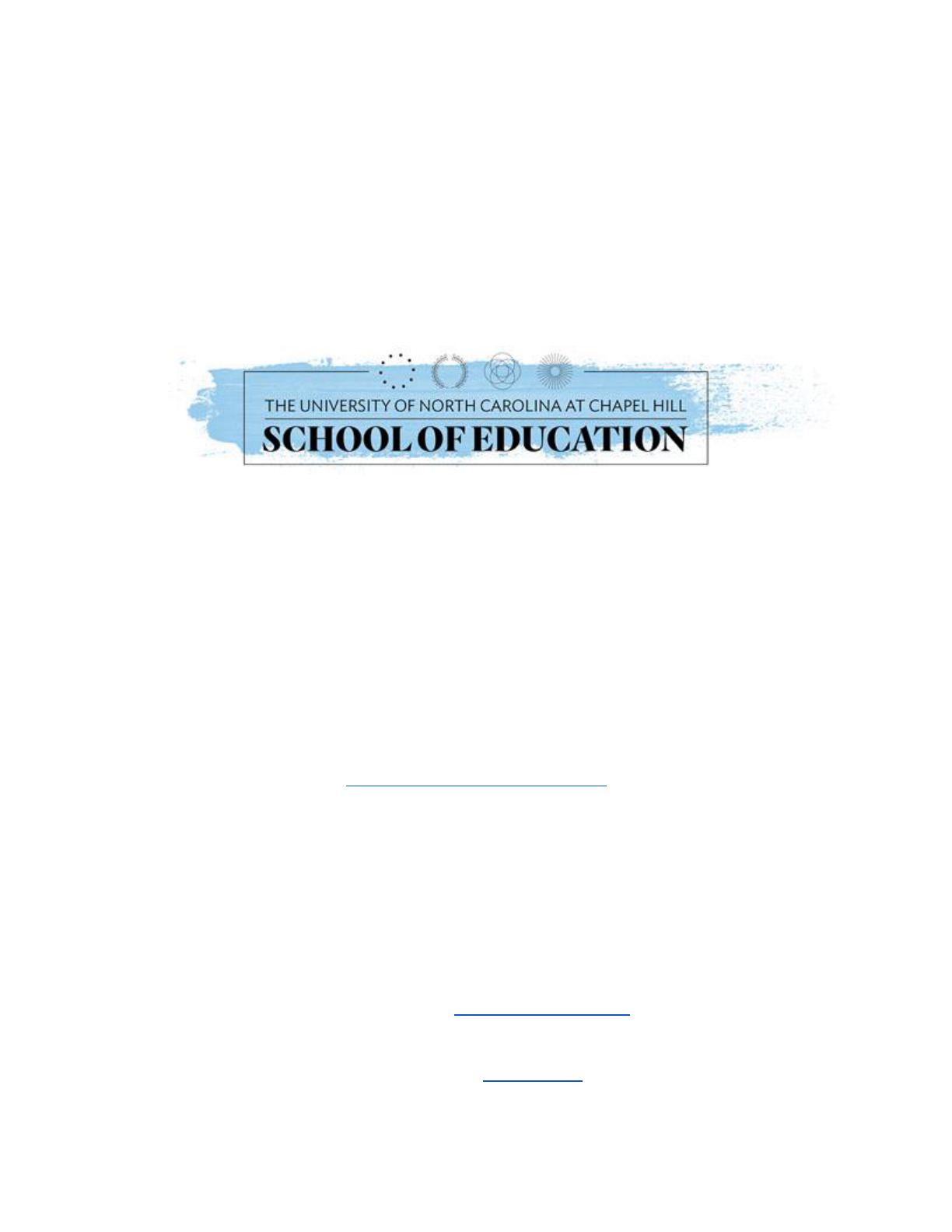
1
MASTER OF ARTS IN TEACHING
HANDBOOK
2023-24
For Teacher Candidates, University Supervisors, and
Clinical Educators
http://soe.unc.edu/academics/mat/
Program Director of the MAT:
Dr. Cheryl Bolick [email protected]du
Assistant Dean of Educator Preparation and Accreditation:
Dr. Diana Lys, [email protected]

2
Table of Contents
INTRODUCTION AND WELCOME ............................................................................................ 5
MAT Orientation Sessions ..............................................................................................................6
STUDENT TEACHING INTERNSHIP CALENDAR: 2022-2023 ........................................................ 6
STUDENT TEACHING INTERNSHIP OVERVIEW ....................................................................... 10
FALL STUDENT TEACHING INTERNSHIP .......................................................................................... 10
Clinical Educator Observations...................................................................................................... 10
Initial Fall Triad Meeting ............................................................................................................... 11
Fall Supervisor Observations......................................................................................................... 11
Fall Summative Evaluation/Three-Way Conference ....................................................................... 11
Fall Methods Course Connections ................................................................................................. 12
Fall Seminars and Programming .................................................................................................... 12
Reflective Journal ......................................................................................................................... 13
SPRING STUDENT TEACHING INTERNSHIP ..................................................................................... 13
Initial Spring Triad Meeting .......................................................................................................... 13
Spring Clinical Educator Role and Observations ............................................................................. 14
Spring University Supervisor Role and Observations ...................................................................... 14
Spring Three-Way Conferences (mid-point and summative) .......................................................... 14
Spring Seminars & Other Programming ......................................................................................... 15
Reflective Journal ......................................................................................................................... 15
UNIVERSITY AND SCHOOL OF EDUCATION EXPECTATIONS AND REGULATIONS GOVERNING
THE INTERNSHIP .................................................................................................................. 16
Policies Governing Student Teaching Absences ............................................................................. 16
Intern Expectations and Professional Conduct ............................................................................... 18
Instructional Practice Expectations ............................................................................................... 18
ACTION PLANS, MODIFICATIONS, AND TERMINATION OF THE STUDENT TEACHING
INTERNSHIP ......................................................................................................................... 19
Action Plans ................................................................................................................................. 19

3
Modification of the Internship ...................................................................................................... 20
Termination of the Internship ....................................................................................................... 20
Leave of Absence/Withdrawal ...................................................................................................... 20
POLICY FOR EARLY RELEASE FROM STUDENT TEACHING/EARLY EMPLOYMENT ..................... 20
PROGRAM COMPLETION AND LICENSURE ............................................................................ 23
NC Teacher Candidate Rubric & LEA/IHE Certificate of Teaching Capacity ...................................... 23
edTPA .......................................................................................................................................... 23
Passing score for edTPA is established by the NC Department of Public Instruction ........................ 24
Licensure Exams ........................................................................................................................... 24
Elementary-Level Interns—Pearson and/or Praxis ......................................................................... 25
Secondary-level (6-12) Interns—Praxis II Exams ............................................................................ 25
K-12 Special Education (General Curriculum) Interns—Pearson and/or Praxis II (Program Strand or
Add-on) ........................................................................................................................................ 25
K-12 English as a Second Language Interns—Praxis II (Program Strand or Add-on).......................... 26
Course Grades & Eligibility ............................................................................................................ 26
ACCESSIBILITY RESOURCES & SERVICES ................................................................................ 26
GRADUATION ...................................................................................................................... 27
FREQUENTLY ASKED QUESTIONS .......................................................................................... 28
APPENDICES ........................................................................................................................ 32
APPENDIX A: MAT LESSON PLAN TEMPLATE .................................................................................. 33
APPENDIX B: CLINICAL EDUCATOR FORMAL EVALUATION TEMPLATE ............................................ 34
APPENDIX C: QRC (Quality Responsive Classrooms) OBSERVATION PROTOCOL .............................. 35
APPENDIX D: REFLECTIVE JOURNAL............................................................................................... 39
APPENDIX E: ACTION PLAN TEMPLATE .......................................................................................... 40
APPENDIX F: DISTRICT PARTNER AND UNC ACADEMIC CALENDARS ............................................... 41
Appendix G: LEA/IHE Certificate of Teaching Capacity ................................................................... 42
Appendix I: MAT Licensure Exam Cost Chart.................................................................................. 48
Appendix II: MAT RL (Residency License) Supervisor Responsibilities – Spring Semester ................. 49

5
INTRODUCTION AND WELCOME
The Master of Arts in Teaching (MAT) Program prepares teachers for Elementary grades K-6,
grades 6-12 in English, mathematics, science, and social studies subject areas, and grades K-
12 Special Education (General Curriculum) and K-12 English as a Second Language (ESL).
The program provides the opportunity for candidates to obtain optional add-on licensure in
either K-12 Special Education (General Curriculum) or teaching English as a Second Language
(ESL)
1
. The MAT Program’s signature pedagogy is Experiential Education, where experiences
outside of the classroom are linked to the pedagogies and methodological approaches students
learn in their coursework and fieldwork. MAT alumni make a difference in schools and
classrooms and in the lives of young people. Our students are exceptional, having been
selected for admission from a highly competitive pool of applicants each year. Our strengths
include both the academic and professional quality of our program as well as the community
spirit that is part of being a University of North Carolina Tar Heel.
The MAT curriculum includes 13 months of coursework and field experiences that begin in early
June and end the following year in mid-June (see calendar). Students must be enrolled full-time
and complete the program in sequence. The core program of study consists of 40+ graduate
credits derived from a combination of coursework and fieldwork experiences in the schools;
add-on licensure (if selected—add-ons are optional) requires 9 additional graduate credit hours
of study and fieldwork experiences in schools. The MAT is built on research-based best
practices, provides early and extensive clinical experience, and engages practicing teachers in
collaborative inquiry. The student teaching fieldwork provides candidates for licensure with an
opportunity to integrate theory and practice, to demonstrate skills in a structured and supportive
environment, and to engage in reflective practice to enhance their strengths and improve upon
their weaknesses. Fieldwork is at the heart of the MAT program and is a requirement for state
licensure.
The following terminology will be used in this handbook to refer to program stakeholders:
Intern: The term “Intern” refers to the MAT students who are student teachers; Interns
are also sometimes referred to in the field as "pre-service teachers" or "teacher
candidates".
Clinical Educator: The term “Clinical Educator” will be used in this handbook to refer to
the classroom teachers who serve as mentors to the MAT Interns. In the field, Clinical
Educators are sometimes referred to as "mentor teachers", "cooperating teachers", or
"clinical teachers". An Intern may have one or more Clinical Educators depending on the
classroom structure and choice of completing an add-on.
Supervisor: The term “Supervisor” in this handbook refers to the university-based
Supervisor who will oversee the Intern’s progression through the program. Each Intern
will be assigned a Supervisor who will be the main contact for field observations and
1
In 2023-24, the ESL add-on option is not available, but select courses will be offered. Please work with
your academic advisor if you are interested in these courses.

6
general support related to field placements. An Intern may have one or more
Supervisors depending on the choice of completing an add-on. Note: edTPA support
may or may not be provided directly by the Supervisor, depending on program strand.
MAT Orientation Sessions
In order to familiarize all stakeholders with the program structure and expectations, a variety of
MAT Orientation Sessions and semester “Launches” will be held, as follows:
Interns: Interns will engage in three orientation/launch sessions throughout the year at program
transitions, as follows (see calendar for dates):
1. Program Entry Orientation: In early May, there is a required Intern/student teaching
orientation for the entire MAT cohort. The agenda includes a review of the MAT
program, School of Education (the School) services, the Handbook including the year-
long calendar, and provides an opportunity for students to ask questions about all
aspects of the program.
2. Fall Fieldwork Launch: Before entering the assigned school placement in August, there
is a required Intern/student teaching launch meeting for the entire MAT cohort. The
agenda will address preparing for fieldwork (e.g. schedule, observations, expectations
for professionalism of student interns in the field) and provide an opportunity for students
to set goals and expectations for fieldwork.
3. Spring Student Teaching Launch: Similar to the Fall Fieldwork Launch, in January before
entering full-time student teaching, there will be a required Intern/student teaching
launch meeting for the entire MAT cohort. Topics will include goal setting, creating a lead
teaching schedule, and the observation/evaluation expectations (including edTPA).
Clinical Educators: At the beginning of the school year, the School and MAT Program faculty will
provide several options for Clinical Educator training to facilitate successful ongoing mentorship
of Interns throughout the year. During this orientation, Clinical Educators will: learn about the
MAT Program’s approaches and pedagogies; review the schedule, requirements, and benefits
of being a Clinical Educator; and also network with other Clinical Educators across schools and
districts. Completion of this training is required each year in order to serve as a Clinical
Educator, even if training has already been completed in a prior year (due to programmatic
changes and updates).
Supervisors: University-based Supervisors are required as a part of their contract to attend and
assist with both the Intern and Clinical Educator orientations. In addition, a Supervisor training
will be offered within the program faculty and/or Supervisor meetings prior to the start of the fall
semester. Supervisor responsibilities, detailed in each contract, include ongoing
planning/training with the MAT Program Director, attendance at all orientations and supervisor
meetings, and the responsibility for planning and running ongoing Intern seminars throughout
the year.
STUDENT TEACHING INTERNSHIP CALENDAR: 2023-24
Summer 2023
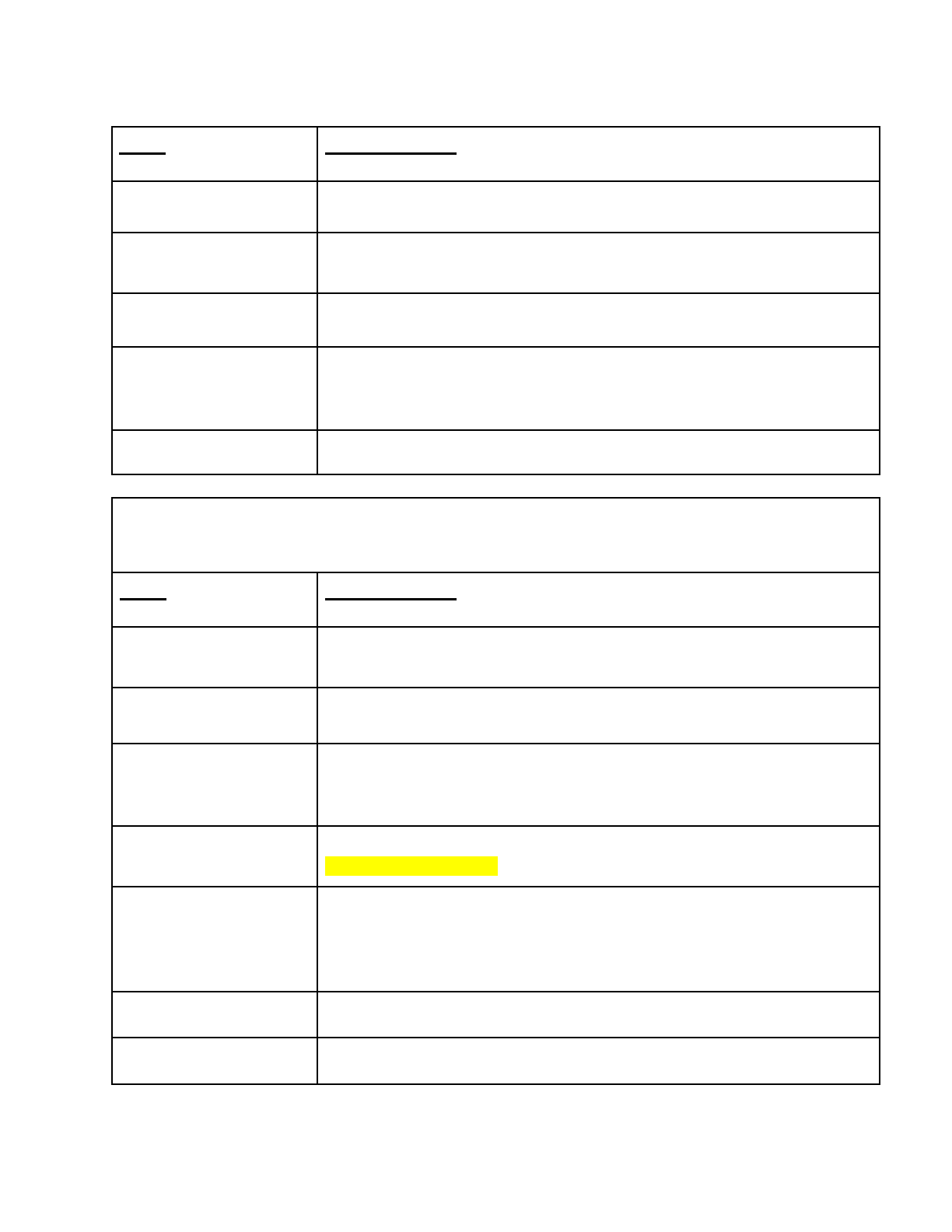
7
Dates
Responsibilities
May 10
MAT Program Orientation—all MAT students must attend
June 5-June 30
MAT Summer Session I:
EDUC 614 and EDUC 615 (mixed grade levels)
July 3-July 7
4
th
of July Break, No classes
July 10-Aug. 4
MAT Summer Session II:
EDUC 628 (all students); EDUC 689 (elementary); EDUC 532
(secondary), EDMX782 (K-12 SPED)
Aug. 7-18
Summer Break, no classes
Fall 2023
Note: Fall schedule includes 1 hour weekly seminar meeting with supervisors
(these are not noted below—supervisors will schedule these individually by group).
Dates
Responsibilities
Thur., Aug. 17
In-person MAT Fall Launch 12:30-2:30 pm —all MAT students
must attend
Mon., Aug. 21
First Day of UNC Classes
Week of Mon., Aug.
21
Begin regular MAT schedule—classes meet per regular schedule;
fieldwork in schools on Wednesday/Thursday schedule (PD days,
preparing for instruction, follow mentor teacher’s schedule)
TBD
Clinical Educator Trainings- (attend one)
Mentor teachers only
Mon., Aug. 28-Fri.,
September 1
One-Week Immersion in Fieldwork
No Monday/Tuesday or Friday (add-on) daytime classes; evening and
online asynchronous courses will meet according to instructor’s
discretion.
Monday, September 4
Labor Day Holiday No classes/fieldwork
Tuesday., September 5
University Wellbeing Day- No classes or fieldwork
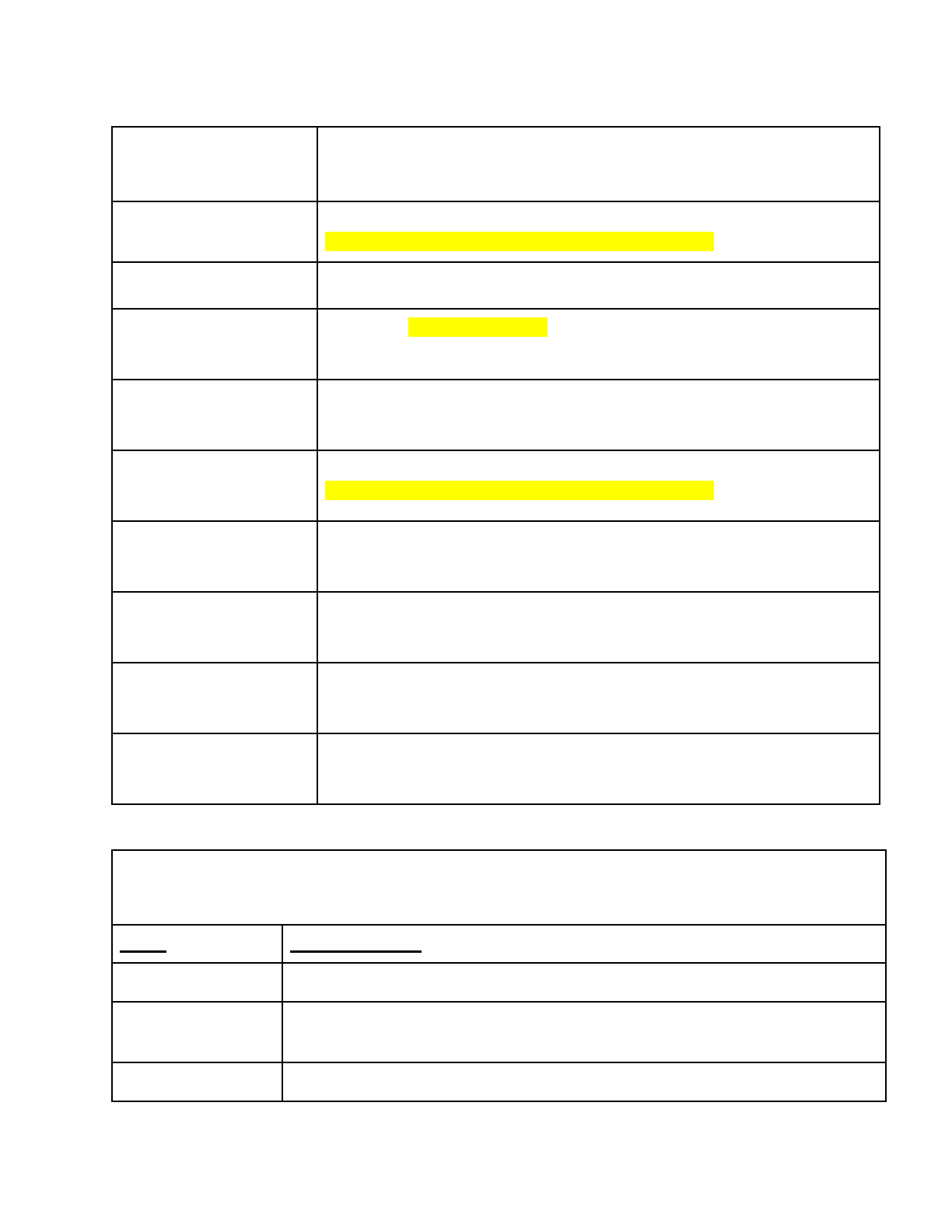
8
September 6
Begin regular MAT schedule—classes meet per regular schedule;
fieldwork in schools on Wednesday/Thursday schedule
Thursday, September 7
Experiential Ed Seminar #1 1-3:30 p.m.
The students are responsible for notifying their CEs
Mon., Sept 25
University Wellbeing Day- No classes or fieldwork
Tuesday, Sept 26-
Friday, Sept 29
EE Week! Local experience (site TBD) or NCOBS
Mon., Oct. 2
Continue Regular MAT coursework & fieldwork
Thursday, October 5
Experiential Ed Seminar #2 1-3:30 p.m.
The students are responsible for notifying their CEs
Thur. Oct 19-Fri. Oct 20
Fall Break
Nov. 22, 23, 24
Thanksgiving Holiday No class/fieldwork
Weds. Dec. 6
LDOC Coursework
Thur., Dec. 7
Last Day Fieldwork
Spring 2024
Note: Interns follow school district calendar for holidays, teacher workdays & spring break
(See Appendix F)
Dates
Responsibilities
Mon., Jan 10
First Day of Classes @ UNC (FDOC)
Mon., Jan 10
MAT Spring Student Teaching Launch 9:30-noon—attendance
required
Mon., Jan 10
Begin Attending Placement Full Time per school district calendar (after
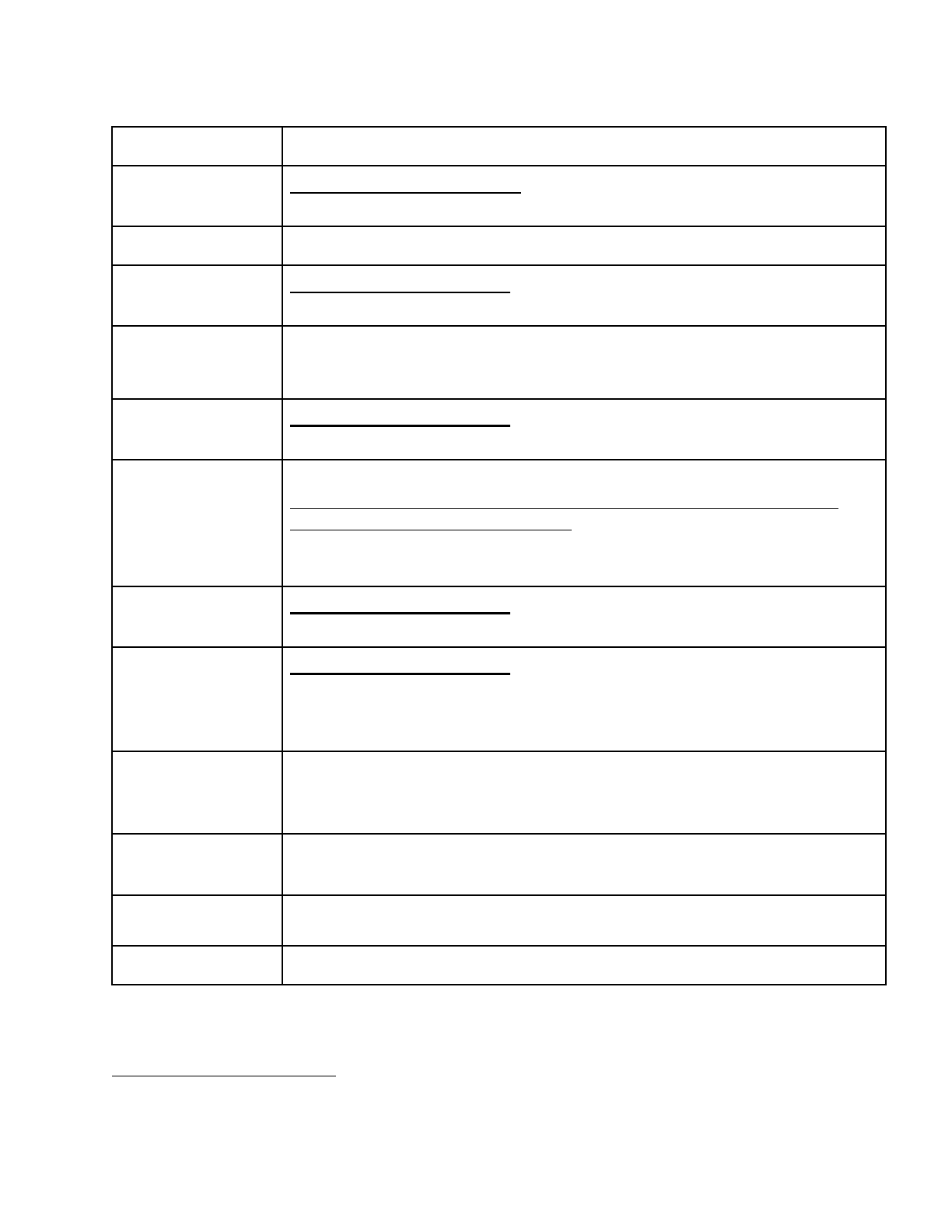
9
noon)
TBD
Experiential Ed Seminar
2
#1
Mon., Jan. 15
Dr. MLK Jr. Day - No School
TBD
Experiential Ed Seminar #2 (Topic: Transformative SEL training)
Spring Breaks:
Spring Break for CHCCS, Chatham, Durham, Orange & Wake – See
individual school district calendars for exact dates/workdays, etc.
TBD
Experiential Ed Seminar #3
April 6 (deadline)
Completed edTPA Portfolio uploaded to Pearson website by 11:59 p.m.
You should plan to upload and review your files at least 48 hours prior to
this date to allow for processing time.
Deadline: April 6, 2024
TBD
Experiential Ed Seminar #4
TBD
Experiential Ed Seminar #5
edTPA Score Profiles returned to students on or around this day (revisions,
if necessary, submitted to supervisor within 7 days)
Tue., April 30
Last Day of Classes UNC (if applicable) & Last day in student teaching
placement
TBD
MAT Program Orientation for incoming 2024-2025 cohort
TBD
School of Education Commencement & family reception
Sun., May 11
UNC Commencement @ Kenan Stadium
2
EE seminars will be scheduled before the Spring 2024 semester opens.
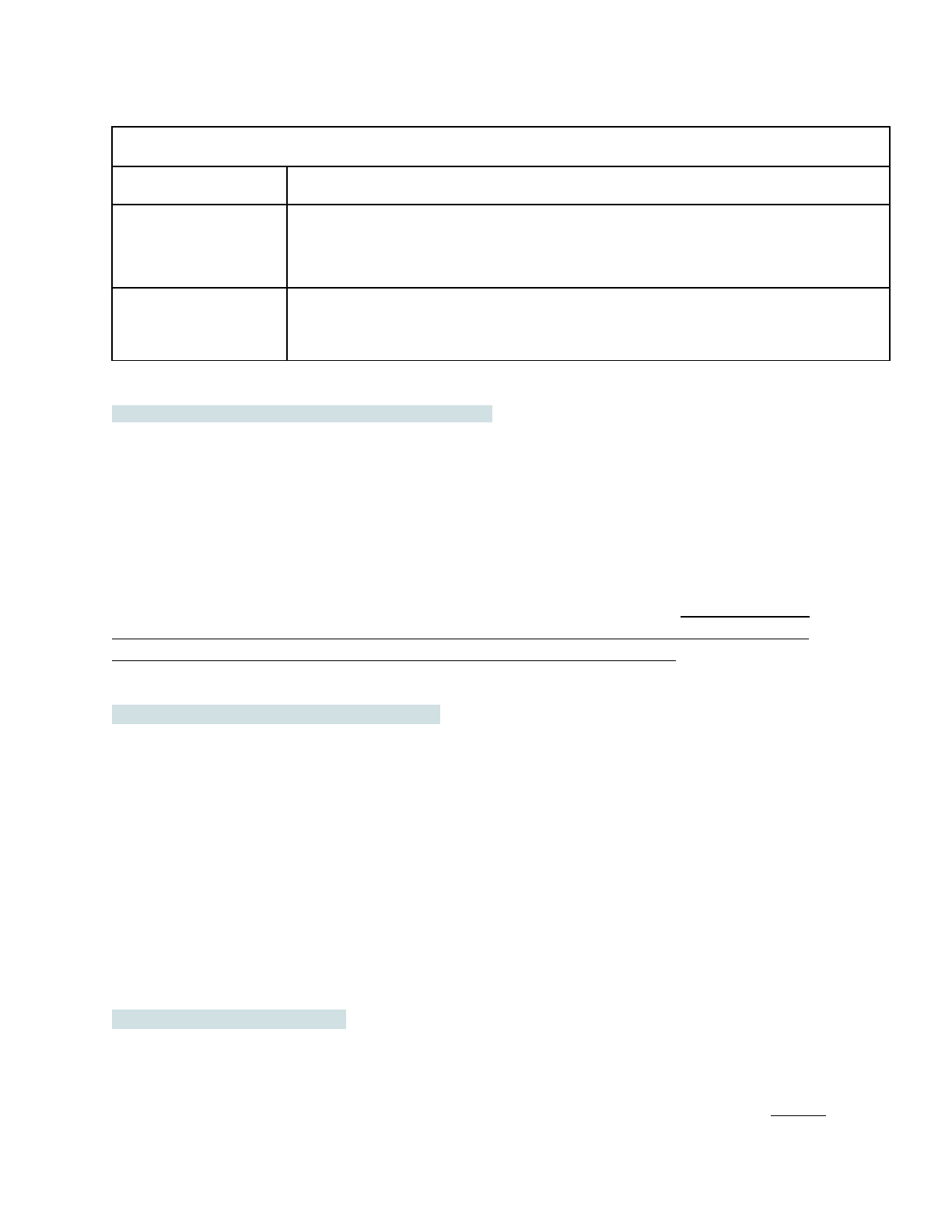
10
Summer 2024
Dates
Responsibilities
Weds., May 15 to
Fri. May 31, 2024
EDMX 708: Teacher research course (MAT Capstone Course). This class
is held in-person, on campus; plan to meet daily during this time according
to hours listed in ConnectCarolina
May 30 & May 31,
2024
Maymester exam days—UNC Academic Calendar
STUDENT TEACHING INTERNSHIP OVERVIEW
Student teaching internship assignments, or "placements", are made collaboratively between
the MAT program and district partners, guided (though not guaranteed) by placement
preferences provided by MAT students through the New Admissions Survey distributed to MAT
students at the time of program orientation. Field experiences usually occur within a 40-mile
radius of Chapel Hill, and students are expected to provide their own transportation to field
sides; carpooling, where possible, is encouraged.
The qualifications and teaching schedules of clinical educators are carefully reviewed to ensure
high quality, developmentally appropriate placements for each MAT intern. No change in the
student teaching internship assignment (either for partial or whole day) can be made without
permission of the MAT Program Director and the district placement liaison.
FALL STUDENT TEACHING INTERNSHIP
Fall Student Teaching Load and Internship Expectations
UNC licensure program Interns are required to be in their placements on Wednesdays and
Thursdays throughout the fall semester (see calendar). Interns will coordinate with their Clinical
Educators in order to attend summer teacher workdays during the first week of UNC classes
(see calendar). Interns are also required to attend placements for the first two weeks of school
(see calendar). For these weeks, Interns are excused from School of Education daytime
courses in order to attend their school placements full time (evening and online courses will
meet per the instructor’s schedule). After this two-week immersion, Interns will resume attending
placements on Wednesdays and Thursdays for the remainder of the semester (except for the
Experiential Education week in Fall–see calendar).
Clinical Educator Observations
The role of the Clinical Educator (“cooperating/mentor teacher”) is to be the Intern’s professional
mentor. We know that our Clinical Educators will be observing the vast majority of lessons the
Intern conducts and will be providing ongoing feedback which is vital for the Intern’s
development. For the fall internship, the School requires Clinical Educators to perform at least

11
one formal observation of the Intern teaching a lesson. It is the Intern's responsibility to
schedule and plan this observed lesson, which should be planned using the MAT Lesson Plan
Template (see Appendix A). The Clinical Educator should document her/his observation and
feedback using the Clinical Educator Formal Observation Template (see Appendix B) or another
form of their choosing. Formal observations will be shared with the Intern during a post-
observation conference and the formal observation document(s) will be uploaded to Taskstream
by the Intern. After Interns plan and teach the lesson, they will create an entry in their Reflective
Journal (see fieldwork syllabus for details) to reflect on the experience, which they are also
required to upload to Taskstream. Completing this reflection right after the lesson observation
and debriefing conversation is highly recommended.
Students completing an optional "add-on" are required to complete the Add-on fieldwork
portfolio and complete observations and fieldwork with in-service teacher mentors as required
by each portfolio item.
Initial Fall Triad Meeting
During the first two weeks of school, the supervisor will schedule and facilitate an initial triad
meeting between the Intern, Clinical Educator and University supervisor. The purpose of this
meeting is to discuss expectations for the semester among the triad, set initial goals related to
NC Teacher Candidate Rubric (NCTCER) and a program adopted dispositions assessment. It is
also recommended at this time that the dates for observations are established for all members
of the triad.
Fall Supervisor Observations
The University Supervisor serves as the Intern’s School of Education liaison and advocate. For
the fall internship, the Supervisor and/or internship course instructor will observe the Intern at
least one time during the fall semester, EITHER teaching a lesson (planned using the MAT
Lesson Plan Template) OR observe the Intern more broadly engaging with students during
instructional time in the classroom. The format and type of observation is up to the discretion of
the Supervisor in conversation with the Intern and the Clinical Educator. The Supervisor will
document her/his observation and feedback using the QRC Observation Protocol (see Appendix
C). Formal observations will be shared with the Intern during a post-observation conference and
the formal observation document(s) will be uploaded to Taskstream. After Interns plan and
teach the lesson, they will write a reflection entry in their Reflection Journal and upload it to
Taskstream. Completing this reflection right after the lesson is highly recommended.
Students completing an optional "add-on" are required to complete the Add-on fieldwork
portfolio and complete observations and fieldwork with in-service teacher mentors as required
by each portfolio item.
Fall Summative Evaluation/Three-Way Conference
One Three-Way (“Triad”) Conference with the Clinical Educator(s), Add-On Clinical Educator (if
applicable) University Supervisor, and Intern will be conducted the last week of the fall

12
semester. At the conference, the North Carolina Teacher Candidate Evaluation Rubric
3
will be
discussed and rated, and the scores recorded in Taskstream. Interns may be rated below
proficiency, and this score does not impact course grades. This evaluation serves as a pre-
assessment for spring student teaching to impact goal setting during the Final Triad Meeting. A
dispositions assessment may also be discussed at that time. At times it makes the most sense
for the fall summative evaluation/three-way conference can be combined with the spring initial
triad conference—and this is acceptable as long as all parties agree.
Fall Methods Course Connections
Interns are expected to become an integral part of the classroom. Active participation –
including observing and reflecting on pedagogical practices discussed in disciplinary methods
classes, and teaching small or whole group lessons when appropriate – are ways to connect
with the students and Clinical Educator. Interns will be tasked to plan and execute lessons
connected to the methods block. University Supervisors will observe Interns formally at least
once in the fall semester. The lesson taught for this observation may be one of the lessons
taught for the methods block. Interns may also choose other lessons for their Supervisor and
Clinical Educator to observe for feedback.
Fall Seminars and Programming
There are two types of Seminars in the fall:
1. Weekly Reflective Seminars are an integral part of the MAT Interns' fieldwork practice. In
the fall, these will be scheduled by each individual supervisor and will last for
approximately 1 hour/week. In the spring, these seminars will be a part of the EDUC 747
course sequence. The purpose of these seminars is for the Interns to take charge of
their learning by participating in reflective discussions about their practice, guided by
Supervisors and, at times, program faculty. Interns are expected to have their Reflective
Journal completed for the week by the time of the seminar and bring it to the seminar for
potential work with its contents.
2. Interns will participate in approximately four (4) Experiential Education Sessions
throughout the course of the Fall semester on the dates specified (see calendar). The
purpose of these seminars is to make sense of the theories and practices related to
Experiential Education so Interns can make appropriate connections related to EE to
their teaching practice in their individual school contexts. At times, these seminars will be
in direct preparation for EE Experiences, so attendance is required. Weekly Reflective
Seminars will not be held on the weeks that the EE seminars take place, unless
otherwise agreed upon by individual supervisory groups.
Attendance at all seminars is required, though absences may be excused according to the
University attendance policy; students must fill out the Internship Absentee Form
[https://go.unc.edu/internabsence] as soon as they are aware they will be absent from a seminar
and are responsible for obtaining information about the seminar from a MAT colleague or their
University Supervisor.
3
The NC Teacher Candidate Evaluation Rubric is available in the Student Teacher Folder in Sakai

13
Reflective Journal
In addition to participation in the Reflective Seminars, Interns are expected to engage in
reflective practice about their classroom experiences, interactions, teaching practices. This
reflective practice happens throughout the internship experience through conversation with the
Intern’s Clinical Educator, colleagues, and Supervisor. To document this reflective practice,
Interns are required to create at least one formal Reflective Journal entry per week (see
Appendix D), either about a formally observed lesson (see above) or about their teaching
practice more broadly. It is the Intern’s responsibility to maintain the Reflective Journal weekly
and bring it to all Reflective Seminars and EE (see above and calendar) to share with
colleagues, Supervisors, and instructors. Interns are required to scan and upload their
Reflective Journal to Taskstream on a monthly basis.
SPRING STUDENT TEACHING INTERNSHIP
Internship & Lead Teaching Expectations (for primary and add-on programs of study)
UNC licensure program Interns are required to attend their full-time placements for the entire
spring semester. Interns will begin in their placements on the first day of UNC classes in
January and follow their school district's calendar through the last day of fieldwork in May (see
calendar). Interns, in consultation with their Clinical Educator, will take responsibility for one
content area or instructional block at a time, “ramping up” to full-time lead teaching in their
primary program of study content area for a minimum of 6 weeks as approved by the primary
Clinical Educator and University Supervisor. Students completing one of the optional add-on
programs of study in either Special Education or ESL
4
will continue working on their add-on
fieldwork portfolio. The lead teaching schedule for both the primary program of study and the
optional add-on program of study should be designed and approved before the second week of
the spring semester begins.
While teaching full-time, Interns are responsible for all of the planning, teaching, assessing, and
other classroom duties that the Clinical Educator would normally perform. During this time,
Interns and Clinical Educators may continue working in a co-planning and co-teaching manner
according to school protocols; at times, it is expected that the Clinical Educator will leave the
classroom and work in an accessible nearby space in order to provide the Intern with the feel
and responsibility of teaching fully independently. During the semester, Interns will follow the
school system’s calendar, including spring break and teacher work days and are expected to
attend all grade level (e.g. PLC) and professional development meetings with their Clinical
Educators; IEP, 504 and other meetings should also be attended as needed/appropriate. Interns
will be formally observed by both the Clinical Educator(s) and the University Supervisor
according to the schedules described below.
Initial Spring Triad Meeting
During the first two weeks of the spring semester, the University supervisor will schedule and
facilitate an initial triad meeting between the Intern, Clinical Educator and University supervisor.
This can take the place of the fall summative three-way meeting. The purpose of this meeting is
4
In 2020-21, the ESL add-on option is not available, but select courses will be offered. Please work with
your academic advisor if you are interested in these courses.

14
to discuss expectations for the spring semester among the triad, set goals related to NC
Teacher Candidate Rubric (NCTCER), determine a ramp-up to lead teaching schedule, and
review progress on the program adopted dispositions assessment. It is also highly
recommended at this time that the dates for observations are established for all members of the
triad.
Spring Clinical Educator Role and Observations
The role of the Clinical Educator is to be the Intern’s professional mentor. We know that our
Clinical Educators will be observing the vast majority of lessons the Intern conducts and will be
providing ongoing feedback which is vital for the Intern’s development. The School of Education
asks Clinical Educators to perform three or more formal observations of the Intern teaching
lessons – planned using the MAT Lesson Plan Template – and document her/his observation
and feedback using the Clinical Educator Formal Observation Template. Formal observations
will be shared with the Intern during a post-observation conference and the formal observation
document(s) will be uploaded to Taskstream by the Intern. After Interns plan and teach the
lesson, they will create an entry in their Reflective Journal to reflect on the experience, which
they are also required to upload to Tasktream/Watermark. Completing this reflection right after
the lesson observation and debriefing conversation is highly recommended.
Students completing an optional "add-on" are required to complete the Add-on fieldwork
portfolio and complete observations and fieldwork with in-service teacher mentors as required
by each portfolio item.
Spring University Supervisor Role and Observations
The University Supervisor serves as the Intern’s School of Education liaison and advocate. The
Supervisor will perform three or more formal observations of the Intern teaching lessons –
planned using the MAT Lesson Plan Template – and document her/his observation and
feedback using the QRC Observation Protocol (Appendix C). These formal observations will be
shared with the Intern during a post-observation conference and the formal observation
document will be uploaded to Taskstream by the Supervisor. After Interns plan and teach the
lesson, they will create an entry in their Reflective Journal to reflect on the experience, which
they are also required to upload to Tasktream/Watermark. Completing this reflection right after
the lesson observation and debriefing conversation is highly recommended.
Students completing an optional "add-on" are required to complete the Add-on fieldwork
portfolio and complete observations and fieldwork with in-service teacher mentors as required
by each portfolio item.
Spring Three-Way Conferences (mid-point and summative)
Three-way conferences (Clinical Educator, University Supervisor and Intern) will be conducted
twice during the spring internship: midway through the spring (March), and the last week of
student teaching. At each conference the NC Teacher Candidate Evaluation Rubric will be
discussed and rated, and the document will be uploaded to Taskstream by the Supervisor.
Additionally, a dispositions assessment will be used to determine candidate’s progress toward
professional dispositional goals. Some notes:

15
1. The mid-point triad conference is a crucial time during which all targeted areas for
improvement must be identified and a remediation plans put in place if necessary. In
rare cases, Interns may be placed on an action plan at this time, though any concerns
about progress should be identified and communicated to the supervisor prior to this
meeting.
2. At the summative three-way conference, Teacher Candidates must be rated proficient or
above in every rubric in order to successfully meet the requirements and pass student
teaching, unless other arrangements are made to extend student teaching experiences.
Documentation of proficiency will be recorded on the "IHE Certificate of Teaching
Capacity Form" (see Appendix G) distributed via Qualtrics; to be recommended for
licensure, interns must be rated as proficient or higher on a preponderance of items.
Spring Seminars & Other Programming
There are three types of meetings that will occur in the spring:
1. Weekly Reflective Seminars are an integral part of the MAT Interns' fieldwork practice.
The purpose of these seminars is for the Interns to take charge of their learning by
participating in reflective discussions about their practice, guided by Supervisors and, at
times, program faculty. Interns are expected to have their Reflective Journal completed
for the week by the time of the seminar and bring it to the seminar for potential work with
its contents.
2. Interns will participate in approximately four (4) Experiential Education Sessions
throughout the course of the Fall semester on the dates specified (see calendar). The
purpose of these seminars is to make sense of the theories and practices related to
Experiential Education so Interns can make appropriate connections related to EE to
their teaching practice in their individual school contexts. At times, these seminars will be
in direct preparation for EE Experiences, so attendance is required. Weekly Reflective
Seminars will not be held on the weeks that the EE seminars take place, unless
otherwise agreed upon by individual supervisory groups.
3. Online and/or Self-Led Professional Development Modules will occur throughout the
spring semester on topics related to program completion, edTPA, licensure, job search,
and panels with various audiences. These will be announced by email and/or through
supervisors’ communication.
Attendance at all seminars is required, though absences may be excused according to the
University attendance policy; students must fill out the Internship Absentee Form
[https://go.unc.edu/internabsence] as soon as they are aware they will be absent from a seminar
and are responsible for obtaining information about the seminar from a MAT colleague or their
University Supervisor.
Reflective Journal
As in the Fall semester, Interns are expected to reflect often on their classroom experiences,
interactions, and teaching practices during the Spring semester. This reflective practice
happens informally throughout the internship experience through conversation with the Intern’s
Clinical Educator, colleagues, and Supervisor. To document this reflective practice, Interns are
required to create at least one Reflective Journal entry per week, either about a formally

16
observed lesson (see above) or about their teaching practice more broadly. It is the Intern’s
responsibility to maintain the Reflective Journal weekly and bring it to all Reflective and EE
Seminars and meetings with Supervisors to share with colleagues, Supervisors, and instructors.
Interns are required to scan and upload their Reflective Journal to Taskstream monthly.
UNIVERSITY AND SCHOOL OF EDUCATION EXPECTATIONS AND REGULATIONS
GOVERNING THE INTERNSHIP
As with any professional educator preparation program, the regulations and policies pertaining
to student teaching are continually evolving due to the dynamic nature of professional
organizations, legislation, and licensure. General regulations and policies that govern
undergraduate and graduate internships may come from local public school district partners and
the UNC-Chapel Hill School of Education. Questions regarding the undergraduate and graduate
internships may be directed to the Assistant Dean of Educator Preparation and Accreditation,
located in the Office of Student Affairs in Peabody 103.
UNC-Chapel Hill and the School of Education have established certain regulations that will help
Interns work more effectively with Clinical Educators. Regulations require Interns to adhere to
the following:
● Observe the same hours required for teachers while on assignment in schools, which
may include duty stations, extracurricular activities, grade level meetings, and other
professional developments (PDs).
● Follow the local school calendar during the semester in place of the University's
calendar, including holidays and breaks.
● Become a member of the school faculty throughout the student teaching internship.
Participate in official school functions such as faculty meetings, in-service training
programs, teacher workdays, parent meetings, etc.
● Interns may NOT work as a paid substitute for Clinical Educators without a licensed
employee in the room or readily at hand. They may do the actual teaching, but cannot be
paid if the University is in session. Note that while it is beneficial for the Intern to be left
alone in a room for short periods, the Clinical Educator must be accessible and on
campus for the Intern at all times.
Policies Governing Student Teaching Absences
Consistent attendance at the internship site and at required seminars is critical to teacher
candidate development and for the continuity of classroom instruction for the Clinical Educator
and her/his P-12 students. Absences for valid reasons are excused only by the University
Supervisor. It is the Intern’s responsibility to notify their Clinical Educator of the absence and
submit an Internship Absentee Form [https://go.unc.edu/internabsence] to her/his University
Supervisor in advance of the absence or as soon as the Intern realizes an absence is
necessary. Excessive absenteeism, even if excused, is not permitted (see below).
In order for the Clinical Educator to lead instruction during the Intern’s absence, all instructional
plans and materials for the period of the absence must be available in the classroom.
Excusable Absences:

17
● Attendance in Court: documentation required.
● Interview with an employing official (principal or HR): prior confirmation by University
Supervisor required.
● Job fairs: documentation required if outside of those offered by UNC. If an Intern
chooses not to attend a job fair promoted by UNC, students are expected to report to
student teaching placement and follow their regular schedule.
● Professional meetings/conferences/workshops: documentation required
● Religious holiday/observance.
● Scheduled medical/health care appointments: documentation required.
● Illness: If an Intern is sick and unable to attend school, s/he must contact the University
Supervisor and the Clinical Educator before the start of the school day or the day before.
● Serious immediate family illness/Death. In this case, wherever possible, the Intern must
contact the University Supervisor and the Clinical Educator as soon as possible,
preferably before the start of the school day that will be missed.
Interns who anticipate being absent for a medical appointment, religious holiday, or some other
valid reason must receive prior approval from their University Supervisor and their Clinical
Educators. Interns are encouraged to make ALL non-emergency appointments outside of
school hours.
Regardless of reasons for the excused absences, Interns are required to make up any days
over three days in the semester. The Clinical Educator and the Supervisor will arrange for the
Intern to make up the missed days. Grades will be held until these days have been made up.
Unexcused Absences:
An unexcused absence occurs when an Intern is absent for any reason not included in the list
of excused absences above and/or does not attend school and fails to communicate the
absence to the University Supervisor via the Internship Absentee Form
(https://go.unc.edu/internabsence). An unexcused absence is cause for termination of the
internship.
The School of Education will automatically terminate the internship for any Intern who
misses more than a total of five days during the internship without a plan for making up missed
days, whether or not the absences are excused. Students must follow the University appeals
process in order to be readmitted to the applicable Licensure Program.
A Note About Travel:
The MAT program understands that, on very rare and unavoidable occasions (e.g., funerals),
unexpected travel may conflict with a student's fieldwork and/or coursework obligations.
However, you are expected NOT to schedule vacations, family events, weddings, or other travel
which will take you away from your placement or coursework during the MAT. Interns are
expected to consult the MAT program schedule, UNC's Academic calendar, and their placement
district's academic calendar prior to making any travel arrangements. If a travel absence occurs,
it should be reported using the Internship Absentee Form (https://go.unc.edu/internabsence)
and will be considered an unexcused absence and must be made up.

18
Intern Expectations and Professional Conduct
As a professional teacher preparation program, we expect that Interns will:
• Act in a professional manner at all times including wearing professional attire. Interns
should not wear jeans, shorts, sneakers, flip-flops, caps/hats, sweatshirts, etc. even if
this is the common attire for the experienced teachers at the school. All clothing should
be in good condition (e.g. no rips/tears, stains, fraying) and provide adequate coverage
not only when one is standing still, but also when sitting, reaching overhead, or bending
down/over. The hem of skirts and dresses should come no more than two inches above
the knee. Pants/slacks should be worn with a dress shirt or blouse; polo shirts are
acceptable but it is not necessary to wear a tie if wearing a button-down shirt. If you are
in doubt about whether an article of clothing is appropriate for wear in a classroom
setting, ask your supervisor and/or Clinical Educator prior to wearing the garment or
choose something else.
• Adhere to attendance policies. Arrive at the school at the same time as the teachers and
expect to spend the full school day and any additional planning or meeting time as the
Clinical Educator requests. If unforeseen circumstances should cause the Intern to be
tardy for school, the Intern must contact the Clinical Educator and the University
Supervisor as soon as possible; excessive tardiness is not permitted and may require
the implementation of an action plan (see below).
• Follow instructional calendar for the district in which you are placed. Interns are
expected to follow the vacation calendar of the school for the full time student teaching
semester, not UNC’s calendar.
• Conform to the same professional standards as the regular staff members of the
placement school and uphold the Code of Ethics for NC Educators
(http://www.ncpublicschools.org/docs/effectiveness-model/ncees/standards/code-of-
ethics.pdf).
• Recognize the potential in all students and their families. Comment favorably on the
good things happening in the school and contribute positively to the school community
and culture.
• Proactively seek advice of other professionals, including Clinical Educator and University
Supervisor.
• Respect the confidentiality of all students in conversations with colleagues, in written
assignments, and on any form of social media. In order to maintain everyone's privacy
and safety, it is expected that an Intern reports any actual or suspected breach of
confidentiality to both their Clinical Educator and Supervisor as soon as it is discovered
and does not discuss it with MAT peers or school colleagues. If you are unsure about a
situation regarding the ethics of data protection/privacy, ask your Clinical Educator
and/or Supervisor.
Instructional Practice Expectations
The following guidelines are provided to guide the Intern’s instructional practice. Interns are
expected to, in conjunction with their Clinical Educator’s and Supervisor’s support:
● Collaborate with the Clinical Educator to consult the NC standard course of study and
school district pacing guide to plan for instruction that will meet the needs of the learners

19
in your classes. Consider students’ background and individual learning needs as you
develop instructional plans.
● Maintain a record of lesson plans throughout the fall and spring internships.
● Regularly engage in reflection on your teaching practice and observations in both written
and oral formats.
● Create lesson plans and instructional activities that draw upon available resources (from
your coursework, from your Clinical Educator and the school, and from your peers) that
yield original instructional plans that meet the learning needs of your classes. Modify and
extend prepared lesson/unit plans and cite resources, as appropriate.
● Be proactively involved in every step of the educational process including from planning
to instruction to assessment. Contribute to the grading of assignments, posting grades,
lunch duty, IEP meetings, parent communications, parent meetings, open house, PLC
meetings, teacher workdays, professional development, etc.
● Consult with Clinical Educator on significant curriculum, policy and discipline decisions.
● Be available to help students as needed.
● Consult with Clinical Educator to arrange to observe other teachers in the school during
non-instructional time and engage with other members of the school community.
● Attend various extracurricular activities, such as school plays, musicals or sporting
events, to learn more about their students and to develop a better sense of the school
community and culture.
ACTION PLANS, MODIFICATIONS, AND TERMINATION OF THE STUDENT TEACHING
INTERNSHIP
Action Plans
Teacher candidate performance will be assessed regularly by the Clinical Educator and
University Supervisor. If an Intern is evaluated as not making adequate progress, as assessed
on the NC Teacher Candidate Rubric, an Action Plan will be collaboratively developed by the
MAT Program Director, Clinical Educator, and University Supervisor. A sample Action Plan is
available in the Appendix E. The completed Action Plan will be archived in the Intern’s
Internship Portfolio in Taskstream making it available to the University Supervisor, Program
Director, and the Assistant Dean of Educator Preparation and Accreditation for monitoring.
Improvements on the Action Plan will be led by the University Supervisor and Clinical Educator
with regular input from the MAT Program Director. Failure to make the performance
improvements outlined in the Action Plan may lead to modification or termination of the student
teaching internship and jeopardize the teacher candidate’s ability to successfully complete the
program of study.

20
Modification of the Internship
Circumstances other than poor performance may require modification of the student teaching
internship. It is important for the University Supervisor to inform the MAT Program Director, the
Assistant Dean of Student Affairs, the Assistant Dean of Educator Preparation and
Accreditation, and the Clinical Placement and Licensure Manager, in writing, when an Intern is
unable to follow the regular student teaching schedule and meet the instructional and
professional expectations of the internship site. The University Supervisor must include in
writing the rationale for any modification of student teaching. The Intern, Supervisor, Clinical
Educator and MAT Program Director must sign and date a copy of the letter, which will be
submitted to the Intern’s Taskstream portfolio and filed with the Office of Student Affairs. The
Intern will receive a copy of the letter for his or her files. Please be aware that modifications may
also include additional documentation from a medical provider or other campus resources.
Termination of the Internship
For MAT Interns
If a MAT Intern is terminated from their student teaching internship by either the School of
Education or in some cases, the District Partner, for performance related issues the candidate will
earn a "F" (Fail) in the student teaching internship, and will not graduate from the MAT program.
Any grade of F will make the candidate academically ineligible to continue their graduate study,
and once a F is earned in the student teaching internship, it is not repeatable for credit. See The
Graduate School Handbook for more details http://handbook.unc.edu/eligibility.html
For UNC BEST and K-12 Music Interns
If an Intern is terminated from their student teaching internship by either the district partner or
the School of Education, they will earn a "F" (Fail) in student teaching, and they will be directed
to the College of Arts and Sciences to meet with an advisor for determination of a possible
replacement major so the student can graduate. Once a F is earned in student teaching, it is not
repeatable for credit.
Leave of Absence/Withdrawal
If a student qualifies for a medical withdrawal from the university during the student teaching
internship, it may be possible to return in a future term and finish the remainder of their
internship. All requests to do so will be reviewed by the MAT Program Director and both the
Assistant Dean of Student Affairs and the Assistant Dean of Educator Preparation and
Accreditation. Consult the Graduate School Handbook for more details.
Leave of Absence Process
The student is required to communicate your decision with the MAT Program Director, Program
Administrative Support Specialist and Clinical Placements Manager. In addition to the process,
the student must fill out the Leave of Absent form https://gradschool.unc.edu/pdf/loareq.pdf
POLICY FOR EARLY RELEASE FROM STUDENT TEACHING/EARLY EMPLOYMENT

21
UNC-CH recognizes that education is ever changing and growing in different ways, thus we are
ready to adapt. UNC-CH has heard from our district partners, school communities, and students
the need for some flexibility to either engage in long-term substituting or be hired early. To
accommodate and adapt UNC-CH has developed two paths for students which benefit hiring
districts and program completion:
1. Long-Term Substitute Teacher: to be hired as a long-term substitute teacher; and
2. Residency Teacher: to be hired as a Residency licensed (RL) teacher (Teacher of
Record); this can happen at any time prior to commencing spring internship and
coursework.
Employment as a Long-term Substitute Teacher:
This is a UNC student intern who is the lead in the classroom while the teacher of record is out
for an extended period of time.
Students must meet the following:
1. Earn at least a “meets requirements” ratings on all standards by the third observation
2. Yield a satisfactory mid-term observation conference between the student teacher,
clinical educator, and university supervisor AND/OR successful full-time lead teaching
3. Complete all required coursework with accommodations for class meeting times with the
district if necessary and licensure requirements by the end of the MAT in summer II
4. Prepare and submit the Teacher Performance Assessment (edTPA), and yield passing
scores
5. Students must earn a “P” or better in all coursework
Districts and Hiring Liaison must agree to the following:
1. Assign a mentor to the long-term substitute and forward that information to the SOE
Assistant Dean for Educator Preparation and Accreditation and the MAT program
director.
2. Ensure that the student is subbing in the licensure area of preparation
3. Accommodate the students' needs/request for time to attend UNC required courses
4. The principal of the employing student shall conduct a formal observation for the student
using the SOE observation form and submit it to the MAT program director and SOE
Assistant Dean of Educator Preparation and Accreditation by the designated due date
Important notes for long-term subs:
• Released Student teachers are not considered licensed personnel until after the official
date of graduation for the semester in which they graduate. Student teachers should be
informed by the hiring district that they will only receive substitute pay for the early
release period. UNC SOE will not send any letters to confirm a student’s status as
graduated and/or licensure requirements completed until after all grades have cleared
the Registrar’s Office and graduation status confirmed. This may take as much as three
weeks after a semester ends.
• The hiring school/school district is responsible for remuneration directly to the student
teacher. The UNC SOE shall not act as the fiscal agent once the student teacher is
released from student teaching.
• Student teachers are released from the Student Teaching placement only. They are still
required to complete degree requirements, such as all other courses and edTPA
requirements and other licensure requirements from the program or university and
attend mandatory seminars.

22
• Student teachers shall be allowed to attend the Graduate Recognition Ceremony for
their program. A substitute shall be provided for them to attend on the day of the
ceremony in the semester in which they graduate, either May or December.
Process and Requirements for Employment as a Residency License Teacher:
This is a student intern who is hired by the district prior to program completion, is placed on RL
licenses and is noted as the teacher of record. This individual is hired by the district, mentored
by the district and enrolled in the MAT as their EPP. The individual must meet all UNC-CH MAT
requirements to clear the RL licenses.
To be considered for RL release the following must occur:
1. Request for early release to become an RL teacher should originate from the
employing principal/school system and must be sent directly to the MAT Program
Director and SOE Assistant Dean of Educator Preparation and Accreditation.
2. Request will be reviewed by the MAT Program Director, SOE Assistant Dean of
Educator Preparation and Accreditation, and the University Supervisor for the
following requirements:
A. Completion of all fall coursework with no grades of “L” (low pass) or “INC”
(incomplete), to include in any add-on coursework
B. Successful completion of fall internship, including triad meeting with supervisor
and clinical educator
C. Enrollment in spring coursework for complete MAT and if appropriate RL work
D. Professional dispositions for moving to become teacher of record
3. Student teachers must agree to be pre-released, and they always hold the right to
refuse the release and should do so without repercussion from the University or
School System.
4. Participate in a meeting with hiring principal, MAT Program Director, and Assistant
Dean of Educator Preparation and Accreditation to determine eligibility for RL
5. Participate in meeting with MAT Program Director and Assistant Dean of Educator
Preparation and Accreditation
Hiring Preferences per the program:
1. Employment at the same school as clinical placement site with the clinical educator
serving as the mentor
2. Employment within the same school district as clinical placement site
3. To the extent practicable, limit additional duties added to the RL hires
Expectations of the MAT candidate in the RL position:
1. Enroll in and successfully complete the coursework in spring
2. Complete the EDA, professional educator disposition per the triad meetings and
NCTCER
3. Three observations via GoReact or in person
4. Participate in closing triad meeting at conclusion in spring term
5. Three in person observations by Clinical educator receiving stipend
6. Submit edTPA by program established deadline, with cohort in coursework; see MAT
handbook
7. Pass all licensure exams as appropriate to the content area
8. Successfully complete maymester course
Expectations of the University Supervisor in RL positions:
1. University supervisor assigned to the MAT student teacher for the Fall term will
continue to serve in this role unless hired in another school, in which University
supervisor may change.

23
2. Support preparation of edTPA portfolio submission in concert with spring MAT
coursework
3. See appendix II below
Expectations of the Clinical Educator in the RL position:
1. Conduct three observations during spring term
2. Participate in triad meetings at completion of RL internship (spring)
3. Support preparation of edTPA portfolio submission
Important note:
MAT candidates in RL positions shall be allowed to attend the Graduate Recognition
Ceremony for their program. A substitute shall be approved by the hiring district to allow
the candidate to attend.
PROGRAM COMPLETION AND LICENSURE
At program completion, the MAT Program evaluates Intern performance on four metrics to make
the final determination regarding program completion and the associated recommendation for
licensure. These metrics include successful completion of the following, each of which is
discussed in the sections below:
1. NC Teacher Candidate Rubric & LEA/IHE Certification of Teaching Capacity
2. edTPA
3. NC Licensure Exams
4. Course Grades
NC Teacher Candidate Rubric & LEA/IHE Certificate of Teaching Capacity
The student internship is completed near the close of the spring semester. At that time a Final
Triad Meeting (conference) is held with the Intern, the Clinical Educator, and the University
Supervisor to discuss the student’s performance during student teaching and the “LEA/IHE
Certification of Teaching Capacity” (Appendix G) form is completed and signed. These forms
are aligned with the School of Education Principles and Dispositions, as well as with the North
Carolina Professional Teaching Standards and licensure requirements. Upon completion, the
NC Teacher Candidate Rubric and the LEA/IHE Certification of Teaching Capacity must be
uploaded into Taskstream. The University Supervisor will upload the NC Teacher Candidate
Rubric. The Intern is responsible for securing all signatures prior to uploading the LEA/IHE
Certification of Teaching Capacity. All documents should be submitted by the final day of the
student teaching/internship assignment.
edTPA
All UNC Interns are required to successfully complete an edTPA portfolio in their
content/licensure area. Students in the Elementary Education cohort will complete the
elementary literacy handbook. Students in the Special Education cohort will focus on an IEP
goal related to literacy.
An edTPA handbook can be downloaded from the SOE’s Student Teacher Sakai site. The MAT
Program Director and/or Assistant Dean of Educator Preparation and Accreditation will explain
the edTPA process in detail beginning in the fall term to ensure Interns are knowledgeable of
the edTPA requirements and prepared to develop their portfolios.

24
You will engage in edTPA preparation through your fall methods coursework. There are also
many options to engage support for the edTPA, particularly in the spring semester through
advances methods courses (secondary) and through supervisor/faculty support (elementary). It
is the expectation that you take advantage of these opportunities early and often. Pearson
provides explicit instructions about types of feedback on edTPA that is allowable from
supervisors, mentor teachers, and colleagues here
(https://www.edtpa.com/Content/Docs/GuidelinesForSupportingCandidates.pdf). Ultimately,
edTPA completion is the responsibility of the student intern: be proactive, pace yourself, and
you will be successful.
Students in the Elementary Education cohort will complete the elementary literacy handbook.
Students in the Special Education cohort will focus on an IEP goal related to literacy.
All edTPA portfolios completed by UNC Interns are required to be officially scored by Pearson,
the operational partner of SCALE at Stanford University. For the 2022-23 academic year, the
School will provide each Intern with a voucher to cover the cost of official scoring by Pearson
(worth approximately $300). All UNC Interns must submit their portfolios directly to Pearson by
the date noted on the Student Teaching Internship Calendar (see above).
If the edTPA is not successfully passed on the candidate’s first attempt (this is rare) or if
condition codes prevent full scoring by Pearson, the candidate is responsible for paying the
necessary fees for rescoring ($100 per task; maximum $300). For this reason, it is imperative
that the student teacher take advantage of all opportunities provided by the program related to
edTPA support and completion.
Passing score for edTPA is established by the NC Department of Public Instruction
All UNC Interns must pass the edTPA teacher performance assessment to be recommended for
licensure. The edTPA must be completed during the student teaching internship and the
passing criteria are listed on the NC DPI website (see
https://www.edtpa.com/PageView.aspx?f=GEN_NorthCarolina.html)
• Note: all assessment rubrics are scored on a 5-point scale where 5 is the high end of
the scale.
• Candidates will have one opportunity to revise and resubmit portfolio items and will be
on a tight 7-10 day turnaround to remediate and resubmit to edTPA for official scoring.
Students must pass the edTPA in order to be recommended for licensure and to
complete the program. Cost for resubmitting tasks for rescoring are the responsibility of
the teacher candidate.
Licensure Exams
UNC requires all Interns to complete all licensure exams required by NCDPI for NC Licensure
prior to program completion and prior to recommending the candidate for initial teacher
licensure. The deadline for submitting official passing licensure test scores into your
Taskstream account is July 15, 2024. The students are required to list University of North
Carolina-Chapel Hill (school code #5861) as the score recipient.

25
Licensure exams differ based on the licensure area and are determined by the State Board of
Education; information as of the date of the publishing of this Handbook is presented below. For
the most current licensure information, visit the UNC SOE Licensure website,
https://ed.unc.edu/academics/licensure/testing-required-for-nc-licensure/
Elementary-Level Interns—Pearson and/or Praxis
Candidates seeking the elementary education license must take and pass the following tests in
order to be recommended for licensure:
Praxis Test 7813 – CKT Math Subtest with a score of 150 or higher (after fall
coursework) AND
The Pearson 190: Pearson Foundations of Reading with a scare of 233 or higher
(recommended) OR Pearson Test 090 – Foundations of Reading with a score of
229 or higher.
5
Secondary-level (6-12) Interns—Praxis II Exams
To be recommended for NC licensure in the Content Areas in grades 6-9 and/or 9-12, the
following are required :
● Successfully passing the following tests based on the grade level:
● Middle Grades Licensure (6-9)
Must pass appropriate content test offered by Praxis :
■ Language Arts (Test 5047)
■ Mathematics (Test 5164)
■ Science (Test 5442)
■ Social Studies (Test 5089)
● Secondary Licensure (9-12)
Must pass appropriate content test :
■ English (Test 5038)
■ Mathematics (Test 5165)
■ Comprehensive Science (Test 5435)
■ Comprehensive Social Studies (Test 5081)
MAT candidates may pursue licensure across grades 6-12 by passing the required exams. A
Middle Grade MAT candidate would need to pass the two secondary level Praxis II exams; a
Secondary MAT candidate would need to pass the Middle Grades Praxis II exam.
K-12 Special Education (General Curriculum) Interns—Pearson and/or Praxis II (Program
Strand or Add-on)
MAT teacher candidates in the primary program of study area of K-12 Special Education, OR
any MAT candidate pursuing an add-on K-12 Special Education (General Curriculum) license
5
The program strongly recommends that Elementary MAT candidates take the NC Foundations of
Reading exam over the winter break, after completing the literacy course sequence.

26
may take one of two tests that fulfill the mathematics subtest requirement; as of April 6, 2019
the Pearson Test 103 – Multisubject Subtest is no longer a requirement for the K-12 SPED
education license). Therefore, a candidate seeking K-12 Special Education (General
Curriculum) license must take and pass the following tests:
Praxis Test 5543 – Special Education: Core Knowledge and Mild to Moderate
Applications with a score of 158 or higher AND
Praxis Test 7813 – CKT Math Subtest with a score of 150 or higher AND
The Pearson 190: Pearson Foundations of Reading with a scare of 233 or higher
(recommend) OR Pearson Test 090 – Foundations of Reading with a score of 229 or
higher.
6
The program strongly recommends that Elementary and K-12 SPED MAT candidates take the
NC Foundations of Reading exam over the winter break.
K-12 English as a Second Language Interns—Praxis II (Program Strand or Add-on)
7
MAT teacher candidates pursuing an add-on K-12 English as a Second Language (ESL) license
must take and pass the following tests in addition to the tests required above for their primary
program of study:
Praxis Test 5362 – English to Speakers of Other Languages with a score of 155 or
higher.
Course Grades & Eligibility
Students in the MAT who earn an "L", or low pass" grade may be put onto an MAT action plan.
More than two grades of "L", or low pass, will be exited from the program according to the rules
set forth in the UNC Graduate School Handbook. See http://handbook.unc.edu/preface.html
A student must have a final grade recorded in all courses before beginning the spring internship.
ACCESSIBILITY RESOURCES & SERVICES
If you have a medical condition/disability that may require reasonable accommodation to ensure
equal access to this program, please contact the Department of Disability Services at
919.962.8300, on the internet at http://disabilityservices.unc.edu/eligibility or via email at
disabilityservices@unc.edu. We recommend that you initiate engaging accessibility
resources as soon as possible immediately following acceptance of your offer of
admission to the MAT and matriculation into the MAT. This will allow adequate time for
services to be established, particularly if you are enrolling in Summer classes. We also
recommend that you alert your instructors about your accommodations prior to the beginning of
the summer term, where applicable, to ensure services can begin, even if an official accessibility
plan through the Department of Disability Services hasn’t yet been established.
6
The program strongly recommends that Elementary MAT candidates take the NC Foundations of
Reading exam over the winter break, after completing the literacy course sequence.
7
In 2020-21, the ESL add-on option is not available, but select courses will be offered. Please work with
your academic advisor if you are interested in these courses.

27
GRADUATION
MAT students are eligible to walk in the May graduation ceremony each year, and it is a time
honored tradition that students, their families, and faculty alike look forward to. Please note,
however, that the official conferral date of the MAT degrees is in August after the
completion of summer MAT coursework. For this reason, MAT students should not apply to
graduate in spring; if you do so, you will not be able to register for your summer course(s)
needed to complete your degree. You will need to wait until your summer courses have begin to
apply to graduate in August. The following information is provided for MAT students to plan
ahead for walking in the May graduation ceremony, which typically is scheduled for the second
weekend of May each year.
CEREMONY
The School of Education Commencement ceremony for all School of Education programs,
including the MAT, will take place on Saturday of graduation weekend. MAT students, who will
officially graduate in August because you are finishing summer coursework, are encouraged to
attend this ceremony as the school does not host a commencement ceremony in the summer.
The MAT Program Director will provide your name to be included in the ceremony program
which means you are planning on participating in the ceremony. Again, because you are
officially graduating in the summer, you should not apply to graduate in May, as a degree
application will prevent you from registering for summer courses. Rather, you will need to
ensure that you apply to graduate prior to the summer deadline, which is typically in July. If you
apply to graduate in spring in error, you will need to contact the Assistant Dean of Student
Affairs in the School of Education to fix this.
RECEPTION
Immediately following the School of Education commencement ceremony, MAT students and
their families are invited to attend the SOE reception. Information about this event will be sent
out in the spring semester from the Assistant Dean of Student Affairs prior to the event. Details
will include location, time, RSVP due date, and ticketing information.
REGALIA
Academic regalia is required for all persons participating in any departmental or university wide
commencement event. The UNC Student Stores sells regalia for undergraduates, masters, and
doctoral students. Students can order caps, gowns and announcements online through the
Student Stores. Online orders typically open in mid-March and run through early April through
stoe.unc.edu (graduation tile on front page) and in the store March through May. Master of Arts
in Teaching graduates should ALL select Master of Education in the drop down on the Student
Stores website in order to get the light blue hood for Education. For questions about regalia or
announcements please email [email protected].edu.
DIPLOMAS
Diplomas are printed with each graduate’s full legal name as it appears in ConnectCarolina.
Please check your StudentCenter to make sure your name appears in the system exactly as
you would like it to on your diploma. If you find an error, please contact the records department
in the University Registrar’s Office ([email protected]). Should you fail to correct an error prior

28
to the printing of your diploma, there is a replacement charge. The School of Education does not
issue or mail diplomas; they are mailed centrally from the University Registrar’s Office. If you
experience a problem with the receipt of your diploma, please contact the records department at
records@unc.edu.
MAT applicants graduating in August: Most professional graduate diplomas are printed ahead of
graduation and can be released on Commencement Sunday after degrees have been conferred
by the Chancellor, from Office of the University Registrar. They’ll continue to be available for
pick-up through the end of May, after which any remaining will be mailed from the Office of the
University Registrar to the graduate’s home address as it appears in ConnectCarolina. Students
should send diploma questions to [email protected]u.
MAIN UNIVERSITY CEREMONY IN KENAN STADIUM ON SUNDAY MORNING
Information on the Sunday morning UNC wide ceremony at Kenan Stadium can be found on the
Commencement website at http://commencement.unc.edu.
FREQUENTLY ASKED QUESTIONS
What if I need to miss a day of my Student Teaching placement?
● Email your Clinical Educator and University Supervisor prior to the absence. Then,
submit the form found at https://go.unc.edu/internabsence.
● More information: Page 18 of the Handbook.
What is the deadline for ___________ or when is ____________ being held?
• The full MAT calendar can be found on Page 7 of the Handbook.
• For course specific information, please refer to your syllabus.
• If you cannot find the answer, please ask your direct supervisor or Jia Heiny @
jialiu@email.unc.edu.
How many observations with my University Supervisor will I have each semester?
You will have at least 1 in the fall and 3 in the spring.
More information about observations can be found in the Handbook.
What do I need to turn in for my formal University Supervisor and Clinical Educator
observations?
● A lesson plan (48 hours in advance) to both your supervisor and CE.
● A reflection (after teaching), which takes place of your Reflective Journal for that week
● Notes: Upload both to Taskstream in the Teacher Candidate Evaluation portfolio.
What does the lesson plan for formal observations need to look like?
● A sample MAT lesson plan template can be found in the handbook (see appendix)
● Alternately, you can use a template that is provided by a faculty member or a mentor;
however, it needs to show a deep understanding of the planning needed for a single
lesson.
● You must turn this lesson plan in to your supervisor and CE 48 hours prior to your
observation.

29
What are Reflective Journals and when are they due?
● Regular and deep reflection on teaching practice is instrumental to your growth as a
novice teacher. You will keep a Reflective Journal throughout your time in the MAT.
● Weekly reflection entries are required, though often student teachers find it useful to
write much more frequently.
● Full details about the Reflective Journaling are provided in your fieldwork syllabi each
semester.
● Interns are required to create at least one Reflective Journal entry per week either about
a formally observed lesson or about their teaching practice more broadly.
● You may write about a topic of your choice; supervisors and faculty may also give you
periodic prompts.
● Interns are required to scan and upload their Reflective Journal to Taskstream on a
monthly basis to the Teacher Candidate Evaluation portfolio.
What do I do with my video permission forms for EdTPA?
● Video permission forms for edTPA should be scanned and uploaded to your Taskstream
account (under the Placement Forms and Licensure Requirements portfolio, not the
edTPA Portfolio).
● It is recommended that you scan and upload them as soon as you receive them all back
from your students rather than waiting until after you submit your edTPA.
Are we allowed to see sample/exemplar EdTPAs?
● We do not provide sample edTPAs for your review, nor does Pearson.
● The document “Making Good Choices” as well as the “Rubric Level Progressions” are
provided for you to guide you as you prepare your edTPA.
Who can provide support for my EdTPA?
Pearson provides explicit instructions about types of feedback that is allowable here
(https://www.edtpa.com/Content/Docs/GuidelinesForSupportingCandidates.pdf). Please review
these for details, but in summary:
● Interns may elicit direct feedback from their Clinical Educators.
● Interns may give each other direct feedback.
● Supervisors may ask you questions or provide prompts for reflection, but they may not
provide direct edits or specific writing suggestions (page 4).
My family is already making plans to attend my graduation! How do I find out more
information about graduation weekend?
• You may walk in the May UNC graduation, though technically your degree will be
conferred in August because you will still take your Maymester capstone course.
• Do not register for Spring graduation—the program will provide a list of all students who
are eligible to walk.
• All graduation questions should be directed to the SOE Student Affairs. Please contact
SOEStude[email protected]
● See graduation information in the MAT Handbook.
When do I need to complete licensure tests and how do I know what tests I need to take?
• Licensure tests must be completed by early June of the year you are graduating.
Delaying may result in a delay of when you will be able to obtain your license.

30
• We recommend you take them after completing fall and/or spring MAT coursework while
the information is still fresh from coursework.
• See https://soe.unc.edu/services/student_affairs/testing.php for a list of specific licensure
tests you need to take according to your program of study.
• Upload passing test score reports in Taskstream in the Placement Forms and Licensure
Requirements portfolio.
What if I am offered a job before I complete the MAT? Can I be released early from
Student Teaching?
In remarkable circumstances, a school district may inquire about offering an intern a position as
a full-time substitute teacher to complete the end of the school year. The MAT program's Early
Release Policy and Procedure (Appendix H) provides options for interns in this situation and
requires approval from the university supervisor, Program Director, and the Assistant Dean for
Educator Preparation and Accreditation. Requests for early release must come from the
principal and cannot be initiated by the student teacher.
When will I get my NC teaching license?
MAT students graduate in August, so they are eligible to apply for NC licensure after they
received their degree-awarded transcripts, typically in mid-August. To assist with the job hunt,
the School’s Educator Preparation and Accreditation team will prepare Program Verification
letters for MAT interns that indicate their good standing in the program.
Why do I need to enroll in Taskstream again in fall and winter since I did it already in
summer?
MAT Students are required to enroll in three portfolios, including: (1) Placement forms and
licensure requirements, (2) Teacher Candidate Evaluation and (3) edTPA Program. Students
need to manually self-enroll in individual portfolio when the enrollment guide and code are
distributed. All related documents are stored on the Sakai Student Teacher site. If you have
questions about Taskstream enrollment, contact Jia Heiny at Jialiu@email.unc.edu.
Am I allowed to work during the MAT?
While we cannot require you not to work during the MAT, we strongly discourage it. The MAT is
an intensive, year-long, 40+ credit hour graduate-level program that brings with it significant
time commitments toward coursework, fieldwork, and homework. The rigorous demands of the
graduate-level coursework, readings, and writing are simultaneously combined with the
professional obligations of your fieldwork placement, which leaves little time or energy for work
outside of the MAT.
Can a public-school system hire a teacher candidate to serve as a substitute teacher and
can the teacher candidate receive pay for serving in this capacity?
Please refer to the Residency Licensure Policy: Process and Requirements for Employment as
a Residency License Teacher

31
Does the teacher candidate have the same legal standing as a regular teacher?
Our attorney advises us that although teacher candidates do not have the same legal standing
as regular teachers, many of their responsibilities and protections are the same. G. S. 115C-307
imposes upon teacher candidates the same responsibilities and grants them the same
authorities in regard to discipline as regular teachers. G. S. 115C-309 grants to teacher
candidates the same legal protection as a regular teacher. It provides that the teacher candidate
under the supervision of a licensed teacher or principal shall have "the protection of the laws
accorded the licensed teacher.”
What are the health requirements for teacher candidates?
All teacher candidates and graduate Interns are required to file a completed Health Examination
Certificate with the Student Teaching Placement Coordinator prior to visiting the schools.
Additionally, Criminal Background Checks may be required for each school system.
PROFESSIONAL EMAIL COMMUNICATION GUIDELINES
Email “Dos”
• Open with an appropriate greeting such as: “Dear Dr. Papoi”, “Hello Dr. Lys”, or “Hi Mr.
Schmidt”
• note that you may use first names of professors once they have explicitly invited you to
do so
• doctoral students who are supervisors should be addressed as Ms./Mr. unless they have
an earned doctorate.
*If you are unsure about a person’s title, look it up or ask them.
• Tell the person who you are if you are not certain they will know: “I’m X...”
• Tell the person how you know them or what class you are in: “...in Y Class.”
• Continue with question/issue/proposed solution
• Sign off with a polite closing: e.g. “Thanks, your name”
• Emails should be: brief, polite, direct
• If it takes more than 1-2 short paragraphs, it is best to set up a meeting to discuss it
• If there is an issue, suggest a solution, but don’t expect that it will always be accepted.
Email “Don’ts”
• Use an overly familiar or casual tone: “Hey, Dr. Papoi/Kristin”
• Send an email with only an attachment and no message

32
• Send an email without proofreading it (people don’t expect pristine spelling or
punctuation, but you should make sure that your email says what you intended and is
clear).
• Avoid “text talk” (i.e. TTYL)
APPENDICES
LIST OF ITEMS IN THE APPENDIX:
A. MAT Lesson Plan Template
B. Clinical Educator Formal Observation Template
C. QRC Observation Protocol
D. Reflective Journal
E. Sample Action Plan (Taskstream version may vary)
F. District Partner Calendars
G. LEA/IHE Certificate of Teaching Capacity
H. Early Release Policy and Procedure

33
APPENDIX A: MAT LESSON PLAN TEMPLATE
Teacher Candidate: Grade Level:
Lesson Title/Focus:
Date: Time:
NCDPI/Common Core Learning Standard(s):
Objective/Focus (e.g., “I Can” Statement/Essential Question):
Materials Needed:
Adaptations for Special Needs (EC, ELL, IEP, 504):
Adaptations for Diverse Learners:
Grouping Strategies:
THE LESSON/LEARNING TASKS/SEQUENCE/ORGANIZATION:
Introduction/“Before” (Time – Time):
·
·
Instruction for Learning and Engagement/“During” (Time – Time):
·
·
Engagement and Practice/“During”: (Time – Time):
·
·
Closure/ “After”: (Time – Time):
·
·
ASSESSMENT(S) (include formative and summative assessments where applicable):
· Formative:
· Summative:

34
APPENDIX B: CLINICAL EDUCATOR FORMAL EVALUATION TEMPLATE
Name:
Observation #:
Time:
Date:
Lesson/Subject:
Focus Statement/Question:
NCDPI/Common Core Learning Standard(s):
Time
Running Record
Comments
Overall Successes
Next Steps/Goals
1
2
3
● Content Goal:
● Management Goal:
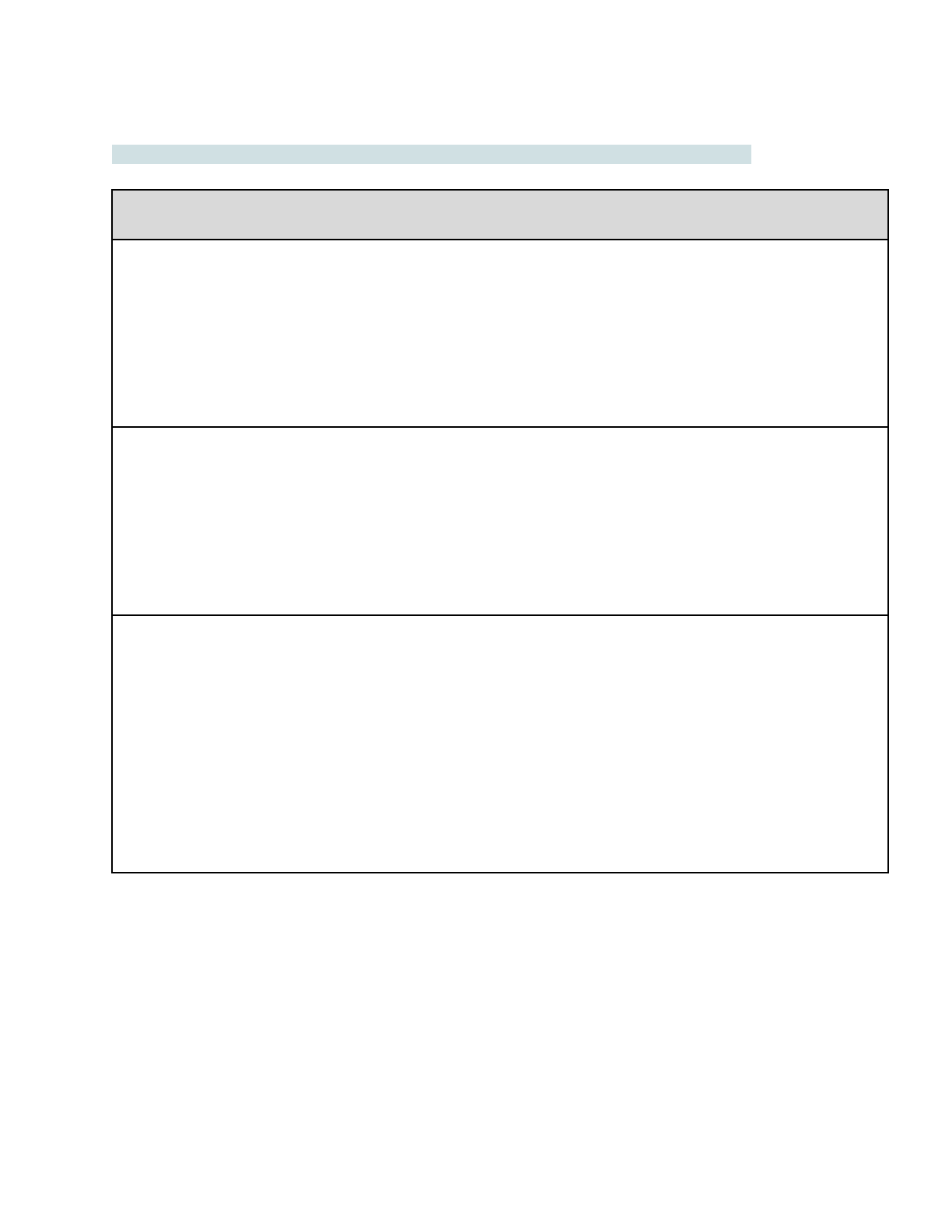
35
APPENDIX C: QRC (Quality Responsive Classrooms) OBSERVATION PROTOCOL
Student Domains and indicators to look for during observation
1) Students take an active role in creating and maintaining classroom norms and protocols.
❏ 1.1 Students know how to use/access resources (materials & one another) and know where to get materials,
whether provided by the teacher or within the larger learning space..
❏ 1.2 Students have internalized and follow classroom/activity norms and expectations, and prompt and
remind one another when necessary.
❏ 1.3 Students appear to be self‐directed, and engage productively in the learning task without waiting for
continual teacher direction.
2) Students generate and/or participate in the process of how to meet learning goals and assignments.
❏ 2.1 Students have appropriate options in how to meet learning goals or fulfill learning tasks, e.g., multiple
ways to represent, solve, and/or respond to a problem or question, and/or appropriate choices within the
context of the lesson.
❏ 2.2 Students ask one another questions regarding learning activities to clarify expectations or assignment
procedures.
❏ 2.3 Students can monitor their individual and collective progress toward learning objective(s).
3) Students participate in learning and support each other in building understanding or knowledge.
❏ 3.1 Students volunteer relevant background knowledge and/or experiences.
❏ 3.2 Students seek out opportunities to extend their understanding of the content (e.g., asking questions
beyond those posed by teacher, bring in outside materials or references to academic topic).
❏ 3.3 Students use their first language and/or vernacular ways of speaking to support their peers academically,
to clarify their thinking, and to build bridges to academic ways of talking.
❏ 3.4 Students are productively, actively, and appropriately engaged in learning activities most of the time (not
just behavior compliance, but active engagement in learning).
❏ 3.5 In general, students have opportunities to collaborate with peers and are actively engaged in academic
talk.
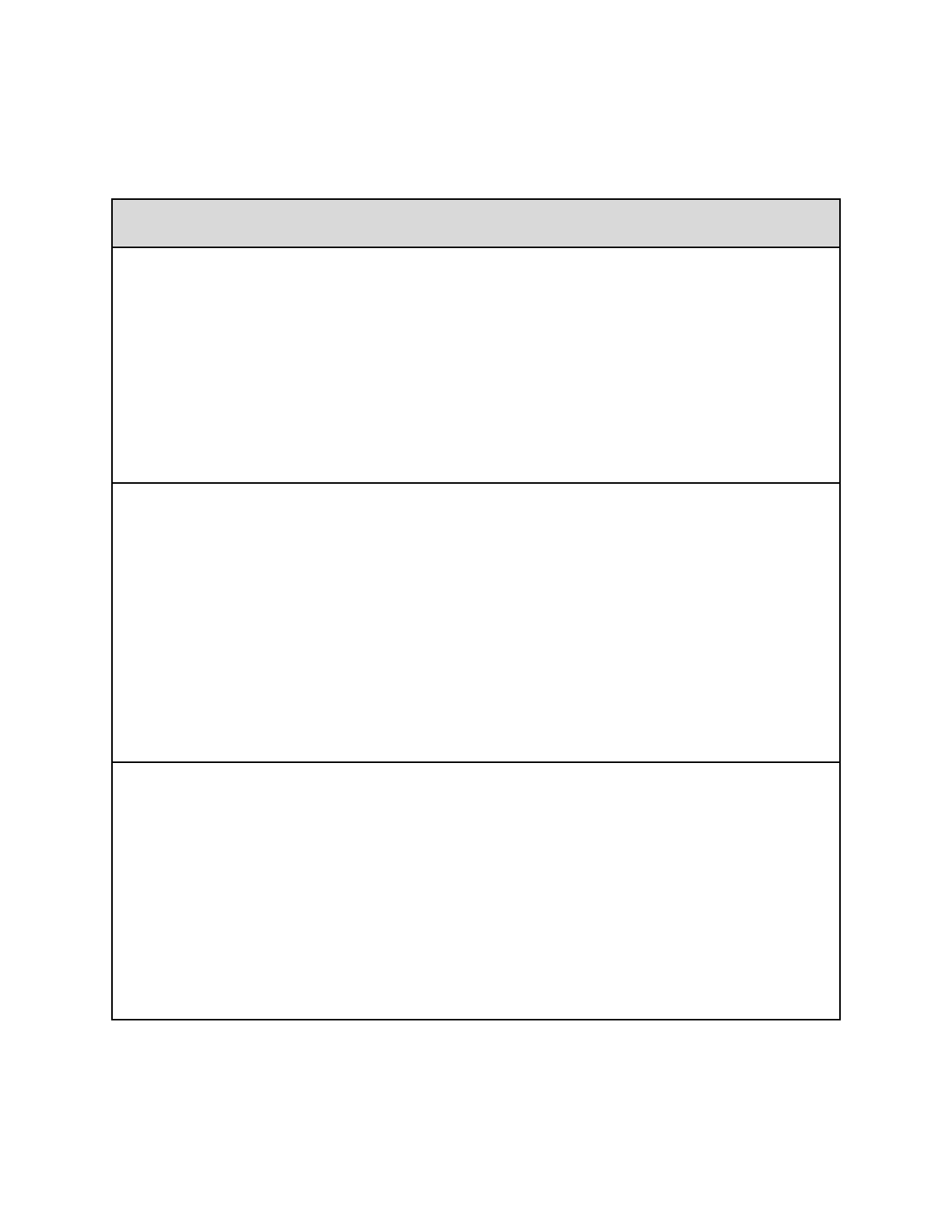
36
Teaching Domains and indicators to look for during observation
1) Focuses on clear and challenging learning goals.
❏ 1.1 Sets and conveys clear content and skill objectives as well as clear language objectives.
❏ 1.2 Learning objectives include higher order thinking language (e.g. apply knowledge, engage in
dialogue, make predictions, synthesize, evaluate, and analyze).
❏ 1.3 Refers to “big ideas” and key learning, and emphasizes/reminds students of these throughout the
lesson/unit.
❏ 1.4 Selects appropriate learning materials and tasks for learning objectives.
❏ 1.5 Communicates and reinforces procedural directions and lesson structures in clear and concise
ways that move the lesson forward in a timely fashion.
2) Engages students in content and learning activities in a responsive way.
❏ 2.1 Makes lesson’s content relevant/useful to the lives of their students.
❏ 2.2 Shows regard for student experiences and integrates multiple perspectives/lenses to encourage
students to think critically (optional ways to solve/think, divergent thinking, look at it from a different
viewpoint).
❏ 2.3 Engages in feedback loops (more than one back-and-forth interaction with substance) that include
higher order thinking questions to probe and gain knowledge of students’ understanding.
❏ 2.4 Fosters and pushes students to engage in metacognition (e.g., thinking aloud, discussing thought
processes).
❏ 2.5 Responsive to student questions/concerns, and takes advantage of “teachable moments” to clarify
students’ understandings of learning goals of lesson/unit.
3) Supports students in their academic progress.
❏ 3.1 Paces instruction based on student learning needs.
❏ 3.2 Scaffolds information/tasks to meet students needs, so all students can access information and
meet goals (e.g., breaks projects/tasks down, differentiates).
❏ 3.3 Builds varied and engaging opportunities for meaningful application of content (e.g., projects,
thematic instruction, connections to community and/or culture outside of school).
❏ 3.4 Permits/supports meaningful peer interactions and conversations with regard to academic
content.
❏ 3.5 Facilitates development of increased student responsibility for learning (e.g., goal setting, note
taking, peer and self assessment with rubrics).
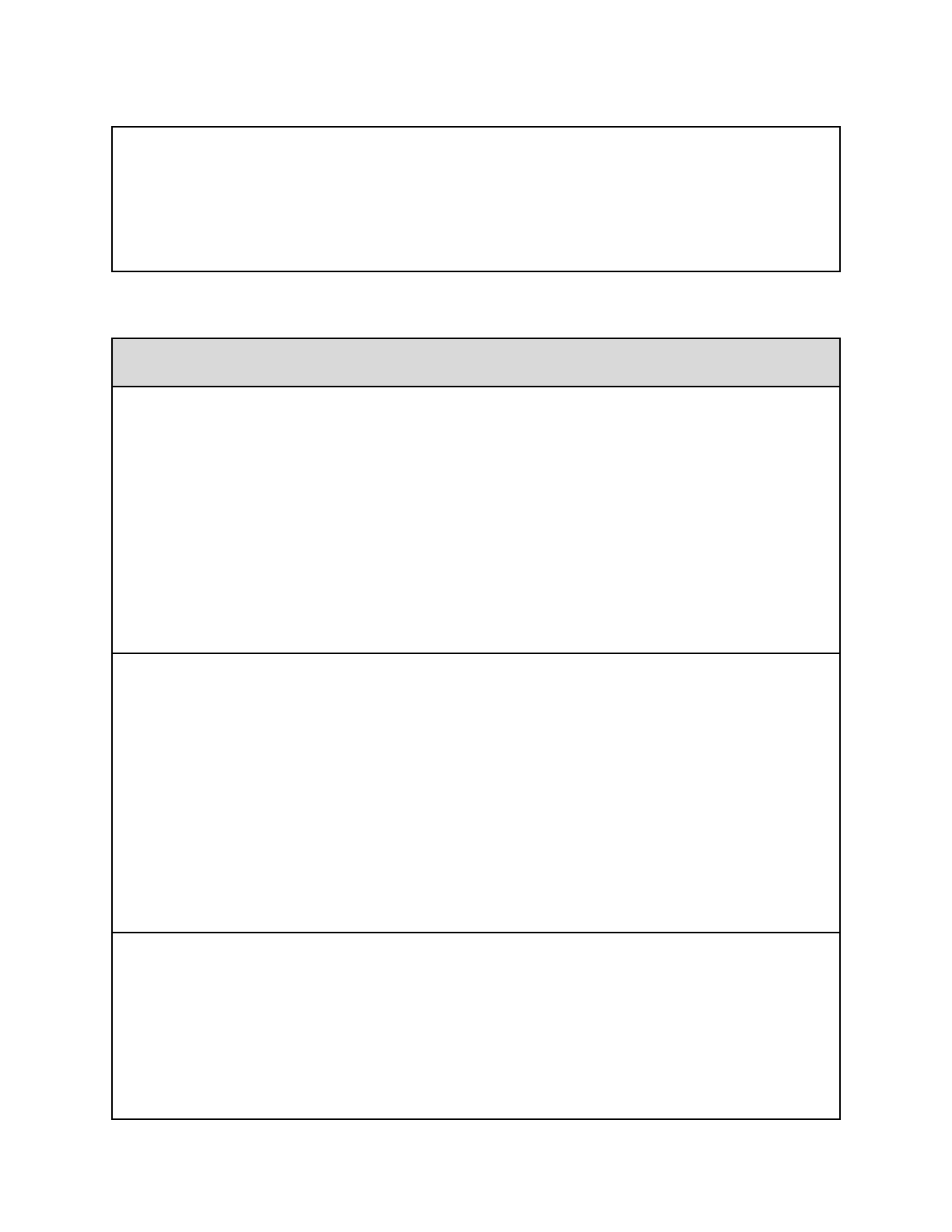
37
4) Strategies are present for supporting culturally and linguistically diverse learners.
❏ 4.1 Links vernacular to academic language/discipline-area terms.
❏ 4.2 Makes strategic use of students’ first language or oral traditions.
❏ 4.3 Integrates instructional strategies to support language development (English language learners &
transitions from vernacular to academic language)
Classroom Community Domains and indicators to look for during observation
1) Physical characteristics of the classroom support academic learning.
❏ 1.1 Learning and language objectives visibly displayed in room, including nonlinguistic
representations.
❏ 1.2 Student work respectfully and thoughtfully displayed.
❏ 1.3 A resource-rich environment has been created that supports student learning (e.g., word walls,
charts and pictures of key content learning, book centers, paper or other materials needed for learning
tasks, etc.).
❏ 1.4 Teacher strategically uses the space to be conducive to learning (e.g., desk arrangements for
different groupings, organization of materials and resources in classroom).
❏ 1.5 Teacher moves around the classroom, attends to most students (may include students with unique
learning needs).
2) Socio‐emotional climate of the classroom supports student engagement and belonging.
❏ 2.1 Teacher-student and student-student interactions seem cohesive, supportive, safe, and often
characterized by humor and warmth.
❏ 2.2 Teacher communicates a belief that students can succeed both academically and personally, and
the teacher won’t give up on students.
❏ 2.3 Regarding students’ culture and use of native language, teacher is sensitive, responsive, and
accepting.
❏ 2.4 Teacher demonstrates and promotes caring interactions, e.g., personal knowledge of students
(names, families, learning needs), greeting students, fostering a climate where students know one
another.
❏ 2.5 There is an absence or intolerance of bullying and teasing.
3) Classroom management reflects a commitment to fairness, justice, and promotes a low-conflict
environment.
❏ 3.1 Teacher has established positive relationships, effective routines, and norms of conduct that
foster a positive learning community.
❏ 3.2 Teacher is respectfully assertive and attends to behavior issues promptly and appropriately.
❏ 3.3 In the presence of disruptive behavior, there is evidence of an established progressive discipline

38
plan that consistently and respectfully reinforces expectations and/or consequences.
❏ 3.4 Conflict (teacher-student and student-student) is mediated respectfully with a resolution
maintaining everyone’s dignity.
❏ 3.5 Absence of teacher-student power struggles or harmful confrontations with or in front of
students.
❏ 3.6 Teacher shows no bias, favoritism, or preferential treatment

39
APPENDIX D: REFLECTIVE JOURNAL
You will keep a Reflective Journal to assist in your reflective practice during your fieldwork. The
goal is to move beyond the “best practices” notion of implementation that has become the
standard expectation of teacher learning into the realm of reflective, responsive practice. Your
Reflective Journal is a place where you will connect what you notice, hear, see, remember,
reflect on, and wonder about in relation to the words, images, actions, theories and work in your
coursework and fieldwork.
The format of your Reflective Journal is up to your discretion in the sense that we want you to
make choices about how and where you journal in ways that will best support your own
personal growth. Keep in mind that you will be doing this reflective writing (as well as drawing
and artifact collection) regularly and so it must be something which you can readily access. You
also need to have it with you at all seminars to be ready to share portions of it (if you are
comfortable sharing). We highly recommend a spiral or bound notebook that you can easily
keep in your teacher bag.
Your Reflection Journal is not a place to take notes in class or your fieldwork placement, nor is it
a place where you make to-do lists or lesson plans. It is a reflective space where you engage in
thinking about your growth and challenges in relation to your teaching practice. Done right, it will
be a wonderful artifact that you create about your student teaching experience, one which you
will treasure for many years. In one sense, your Reflection Journal is a serious piece of
reflective work, but it is also meant to be lighthearted and playful. Do not overthink it or spend
excessive amounts of time perfecting it for anyone except yourself. Be open to including
drawings or physical artifacts/photos are you are able—the more you put into this piece of work,
the more you will get out of it.
You will occasionally share your journal with your instructor/Supervisor and peers so please
bring it to all classes and seminars. If you have ideas or suggestions to make the work more
worthwhile or engaging to help you reflect and grow, suggest them to your supervisor. As a
growing professional you get out of this what you put into it.
TO START: purchase or repurpose a composition notebook that you like. Write your name on it
and gussy it up or keep it plain to start (as you wish). Then do your first entry. You have begun.

40
APPENDIX E: ACTION PLAN TEMPLATE
Teacher Candidate ________________________________ PID# ________________
Clinical Educator ___________________________________________________________
University Supervisor ________________________________________________________
Specific Concern(s) _________________________________________________________
__________________________________________________________________________
__________________________________________________________________________
__________________________________________________________________________
Plan for Improvement
Required
Action
Target Date
Assessment
Method &
Criteria
Evaluator(s)
Follow-Up
Source: Adapted from Maximum Mentoring: An Action Guide for TEacher Trainers and Cooperating
Teachers by Rudney and Guillaume.
Signed and Dated:
University Supervisor ____________________________________________ Date _________
Clinical Educator ____________________________________________ Date _________
Student Intern ____________________________________________ Date _________

41
APPENDIX F: DISTRICT PARTNER AND UNC ACADEMIC CALENDARS
As an emerging teaching professional, it is the Intern's responsibility to access and follow their
placement district's academic calendar in conjunction with the UNC academic calendar and
MAT program schedule, where appropriate. We highly encourage Interns to consult these
calendars prior to making travel plans or purchasing airline tickets for holidays and breaks.
• UNC's Academic Calendar: https://registrar.unc.edu/academic-calendar/
• District Partner Academic Calendars are available on the following district sites:
o Due to COVID, these have not been fully updated for 2021-22 academic years;
we will update this when available.
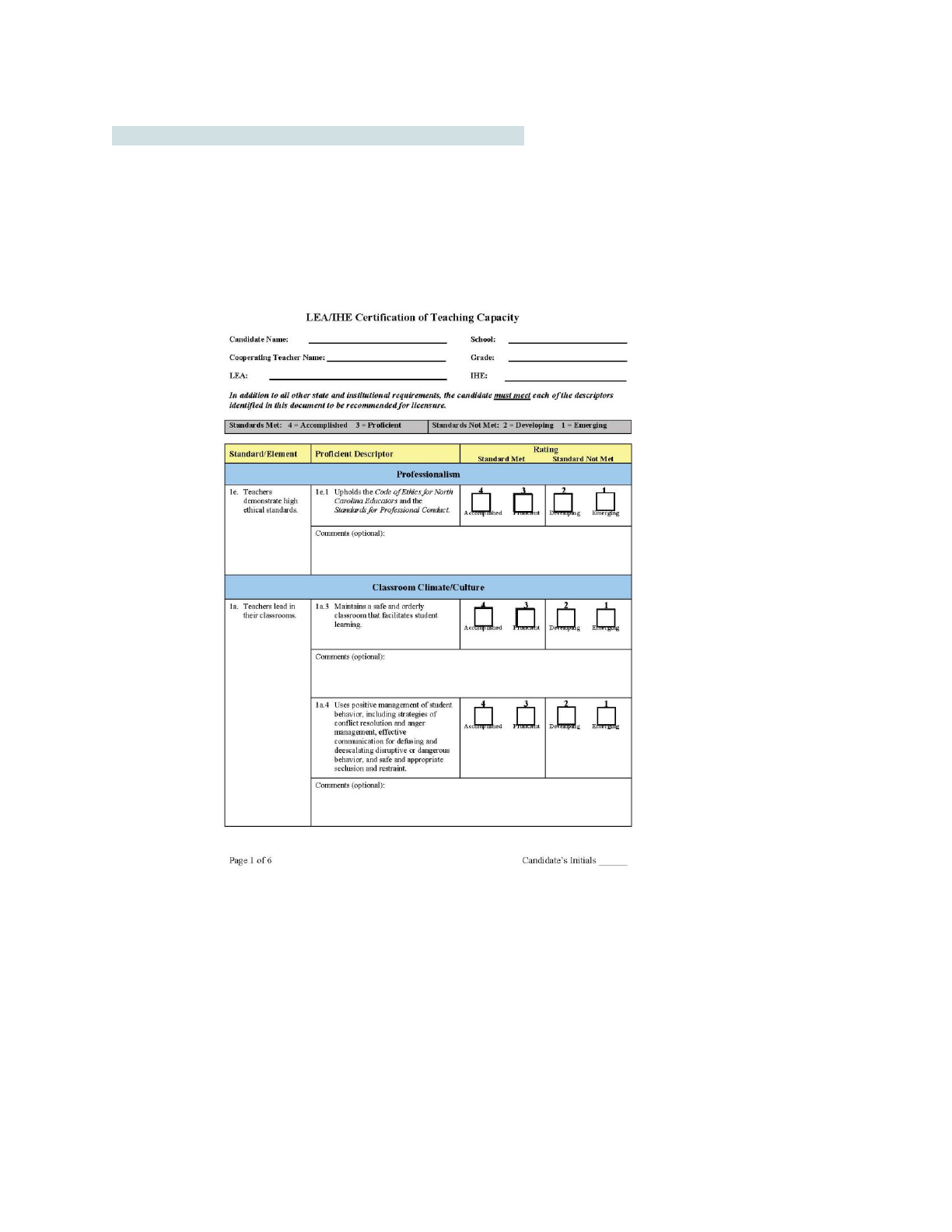
42
Appendix G: LEA/IHE Certificate of Teaching Capacity
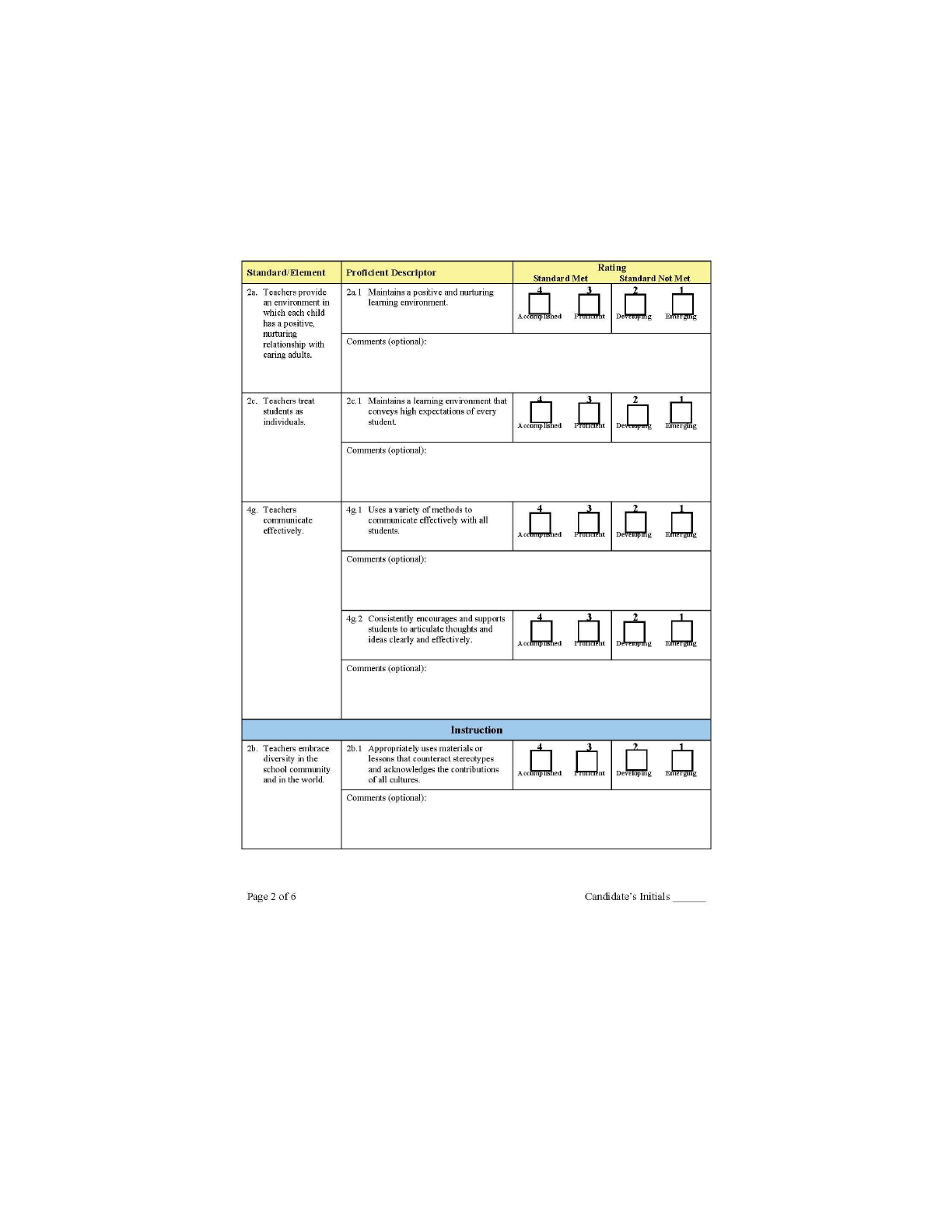
43

44
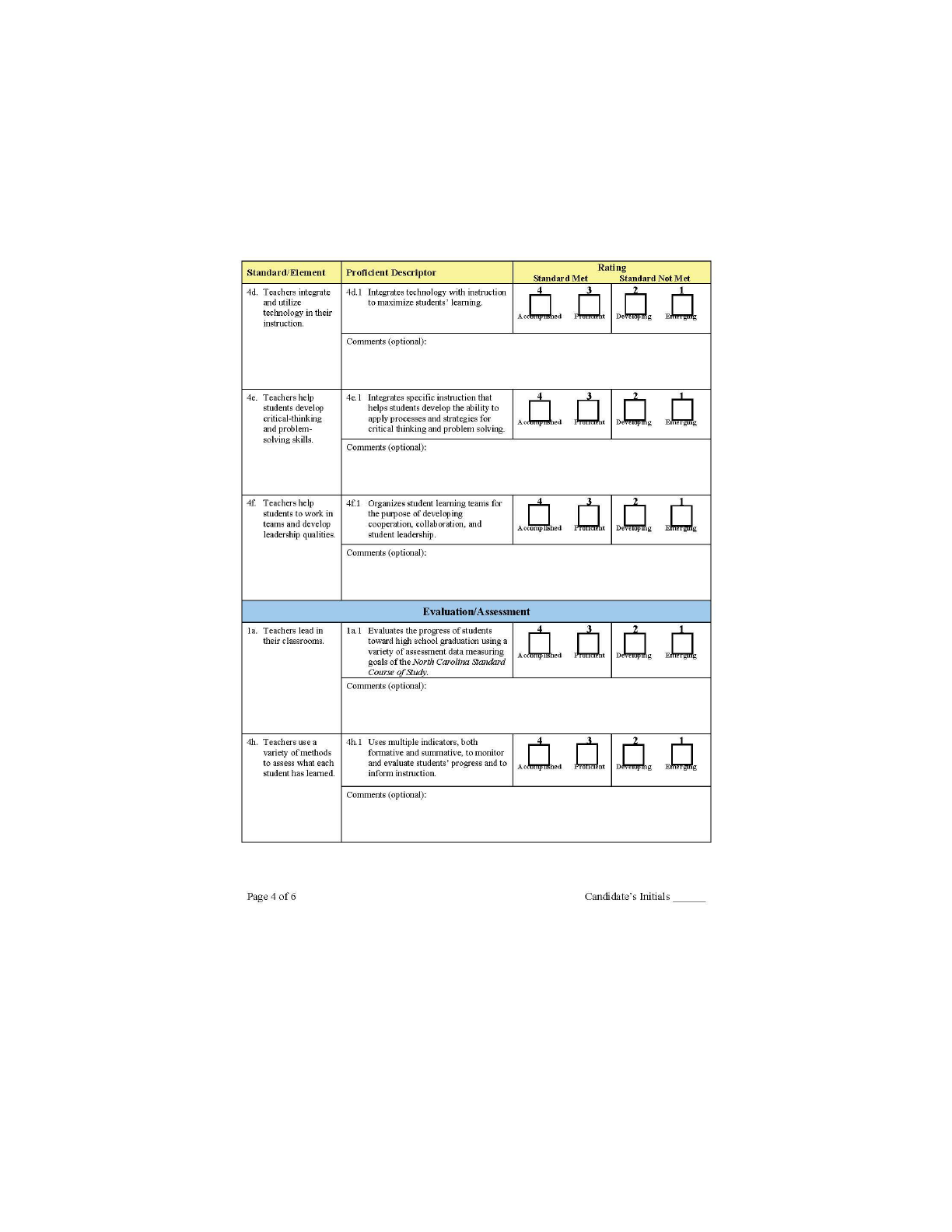
45
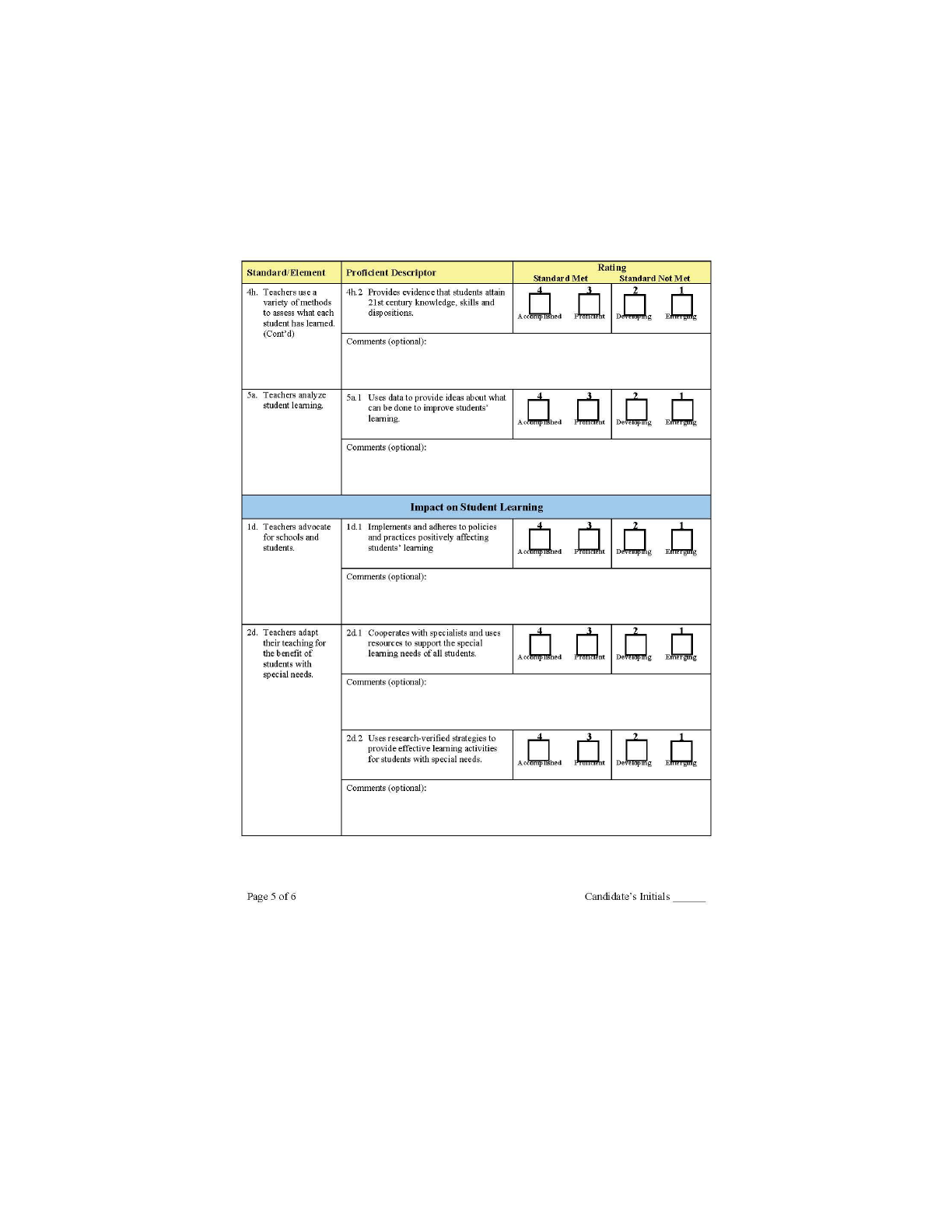
46
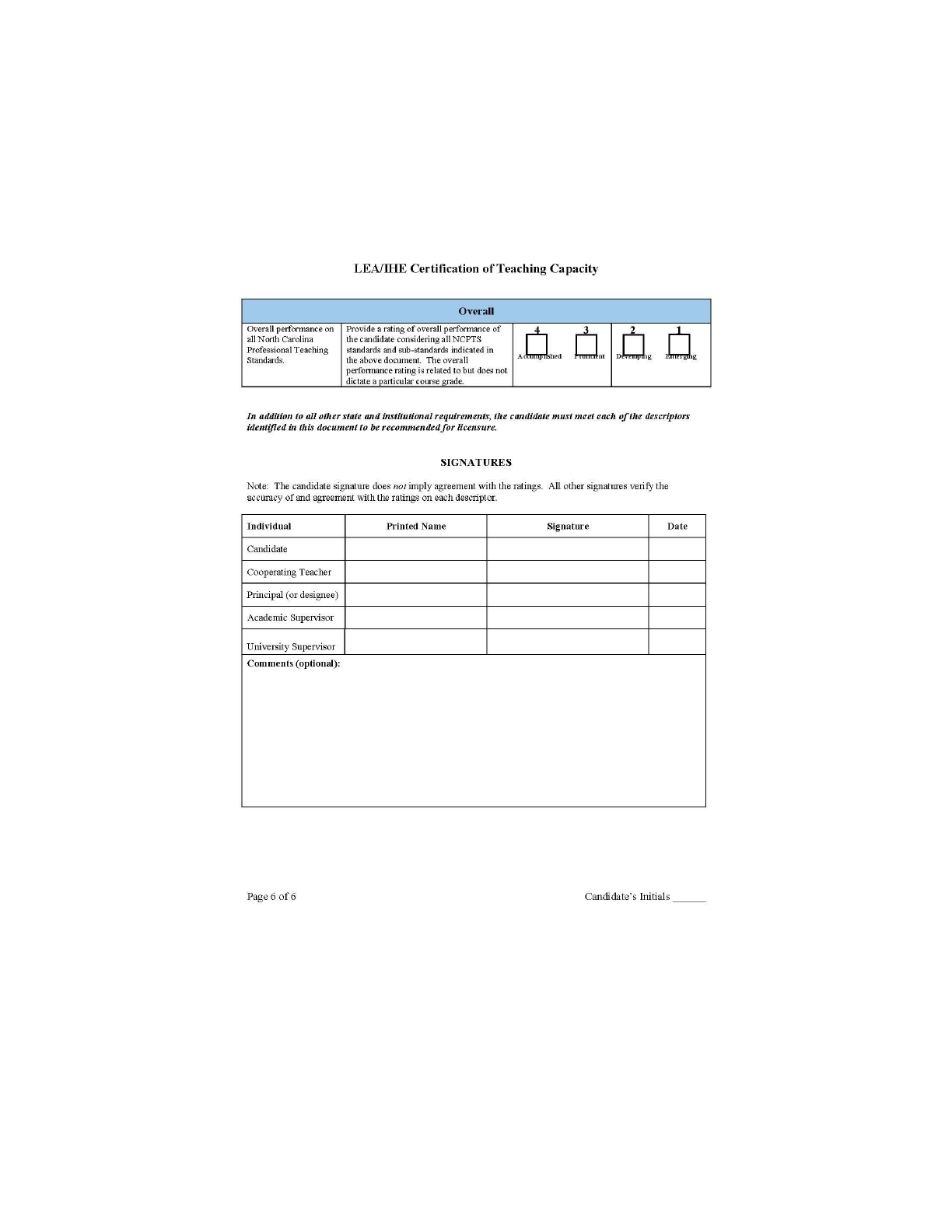
47
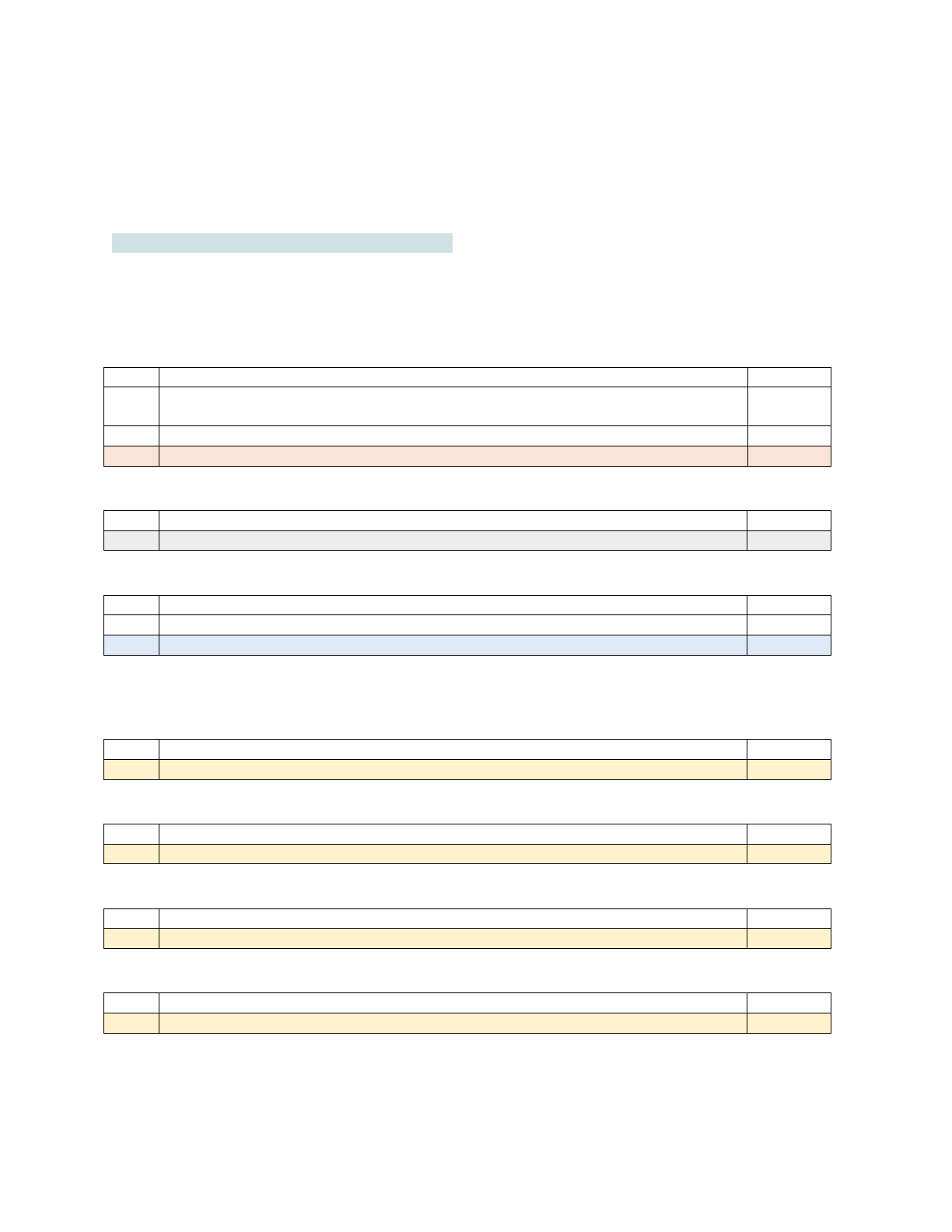
48
Appendix I: MAT Licensure Exam Cost Chart
MAT Licensure Exam Cost Chart
*as of May 2021
SPECIAL EDUCATION (K-12) *same for add-on
090
Pearson Foundations of Reading
$139
5543
Praxis II Special Education: Core Knowledge and Mild to Moderate
Applications
$146
7813
Praxis II Content Knowledge for Teaching Mathematics CKT Subtest
$74
Total Cost
$359
ENGLISH AS A SECOND LANGUAGE (K-12) *same for add-on
5362
Praxis II English to Speakers of Other Languages
$120
Total Cost
$120
ELEMENTARY EDUCATION (K-6)
090
Pearson Foundations of Reading
$139
7813
Praxis II Content Knowledge for Teaching Mathematics CKT Subtest
$74
Total Cost
$213
MIDDLE GRADES EDUCATION (6-9)
Social Studies (Middle Grades)
5089
Praxis II Middle School Social Studies
$146
Total Cost
$146
English Language Arts (Middle Grades)
5047
Praxis II Middle School English Language Arts
$146
Total Cost
$146
Science (Middle Grades)
5442
Praxis II Middle School Science
$120
Total Cost
$120
Mathematics (Middle Grades)
5164
Praxis II Middle School Mathematics
$120
Total Cost
$120
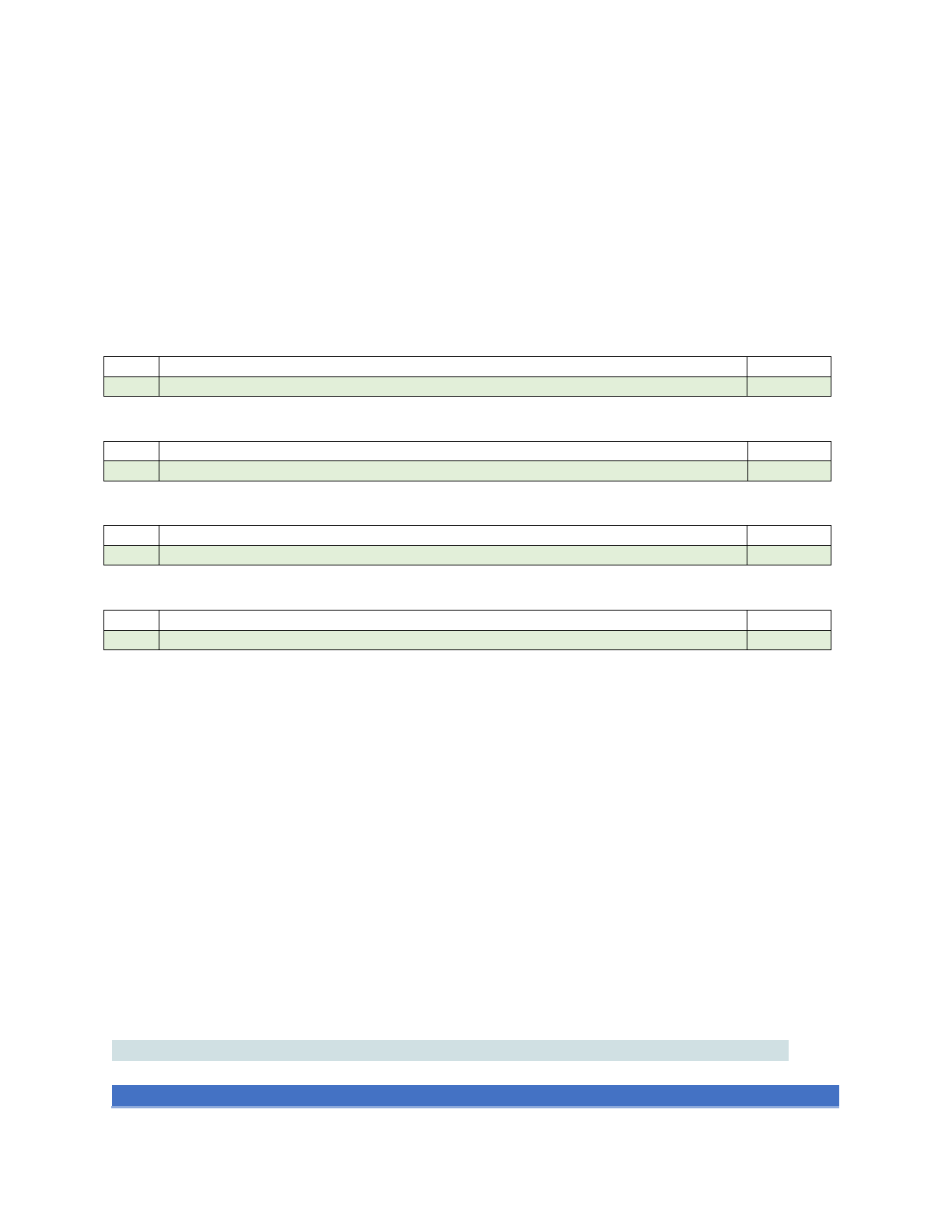
49
SECONDARY EDUCATION (9-12)
*Principles of Learning and Teaching (7-12) (5624) costs $146 and is required for licensure only if edTPA is not
completed. Because edTPA is required for MAT, most candidates will not have to take Principles of Learning and
Teaching (7-12)
Social Studies (Secondary)
5081
Praxis II Social Studies: Content Knowledge
$120
Total Cost
$120
English Language Arts (Secondary)
5038
Praxis II English Language Arts: Content Knowledge
$120
Total Cost
$120
Science (Secondary)
5435
Praxis II General Science: Content Knowledge
$120
Total Cost
$120
Mathematics (Secondary)
5165
Praxis II Mathematics
$120
Total Cost
$120
Appendix II: MAT RL (Residency License) Supervisor Responsibilities – Spring Semester
Title
Attendees
Description
Timing*

50
Initial Triad Meeting
MAT RL, Coach/Mentor,
University Supervisor
• Goal setting
• Establishing edTPA
timeline
• Reviewing expectations of
participants in TRIAD
January
Spring Observation #1
MAT RL, University
Supervisor
• GoReact or in-person
• MAT RL sends lesson plan
24 hours in advance
Late January/
early February
Spring Observation #2
MAT RL, University
Supervisor
• GoReact or in-person
• MAT RL sends lesson plan
24 hours in advance
February
Mid-semester NCTCER
(North Carolina Teacher
Candidate Evaluation
Rubric)
MAT RL, Coach/Mentor,
University Supervisor
Completed by Supervisor
MAT RL should self-reflect and
come with artifacts and
explanations
Late February/
early March
Spring Observation #3
MAT RL, University
Supervisor
• GoReact or in-person
• MAT RL sends lesson plan
24 hours in advance
March
EdTPA submission
MAT RL
March 23**
Summative NCTCER
(North Carolina Teacher
Candidate Evaluation
Rubric)
MAT RL, Coach/Mentor,
University Supervisor
Completed by Supervisor
MAT RL should self-reflect and
come with artifacts and
explanations
Mid-April
Certificate of Teaching
Capacity
MAT RL, Principal or
principal designee,
Coach/Mentor, University
Supervisor
Completed by Supervisor with
input from Principal or designee,
Coach/Mentor, and MAT RL
Late April/ early
May
*Based on the start-date for the MAT RL, the scheduling of these requirements could be earlier.
**edTPA submission may be April 6, with April 6 submission the score report would return by April 27.

